Amy Radin
Keynote Speaker, Workshop Facilitator, Columbia Univ LecturerPragmatic Innovation Partners LLC
Skills
About
When a software company with a successful product faced slowing growth, I uncovered critical disconnects between technological possibilities and human needs. The result? An entirely new business line that delivered millions in revenue and strengthened customer relationships. Today's leaders face this same challenge at greater scale: technically sound initiatives often fail to deliver value not because of technology limitations, but because of gaps between what's technically possible and what people will actually embrace. I help organizations navigate complex change through Strategic Advocacy—a methodology I developed that translates between stakeholder perspectives and builds bridges across organizational divides. My approach converts what appears as resistance into valuable implementation insights, helping leaders align stakeholders strategically, systematically, and quickly. My perspective was forged in my father's corner drugstore, where success depended on understanding diverse customers and creating experiences worth returning for. This foundation shaped my approach: when your ability to put food on the table depends on genuinely serving people, you develop clarity about what matters versus what just sounds good in a meeting. Throughout my career, I've challenged conventional wisdom—becoming one of the world's first corporate Chief Innovation Officers at Citi long before "innovation" became a standard title. I've held senior roles at American Express and served as Chief Marketing Officer at AXA (now Equitable), consistently driving breakthrough change in highly regulated, complex environments. As we enter Industry 5.0, where the relationship between technology and human capabilities must be reimagined, traditional change approaches are increasingly inadequate. Leaders implementing disruptive technologies, redesigning business models, or reimagining customer experiences need different frameworks. This realization led to developing methods I introduce in my award-winning book "The Change Maker's Playbook" and now teach as Strategic Advocacy in the MS Technology Management program at Columbia University. What surprises many is how I bridge seemingly contradictory qualities—analytical yet intuitive, experienced yet future-focused. Today, I bring this integrated approach to help leaders cut through complexity to find pathways others simply don't see—creating competitive advantage through accelerated implementation while differentiating themselves in their careers. I'm always open to connecting with leaders facing meaningful change challenges.
Amy Radin
Published content

article
The real breakthrough comes when you stop seeing pushback as the enemy and start listening to what it tells you.

expert panel
To bring out the best in their remote teams, managers must adapt their leadership styles to meet each employee’s unique needs, preferences, and work habits. Flexibility is essential to effective leadership, especially in remote and hybrid work environments. But flexibility doesn’t mean being hands-off or vague—it means knowing your people well enough to lead them intentionally, based on who they are and how they thrive. To that end, 20 Fast Company Executive Board members offer advice on how today’s managers can adapt their leadership approach to meet the needs of remote team members. From customizing communication styles to co-creating expectations, these strategies offer practical guidance for leading with empathy, clarity, and results.
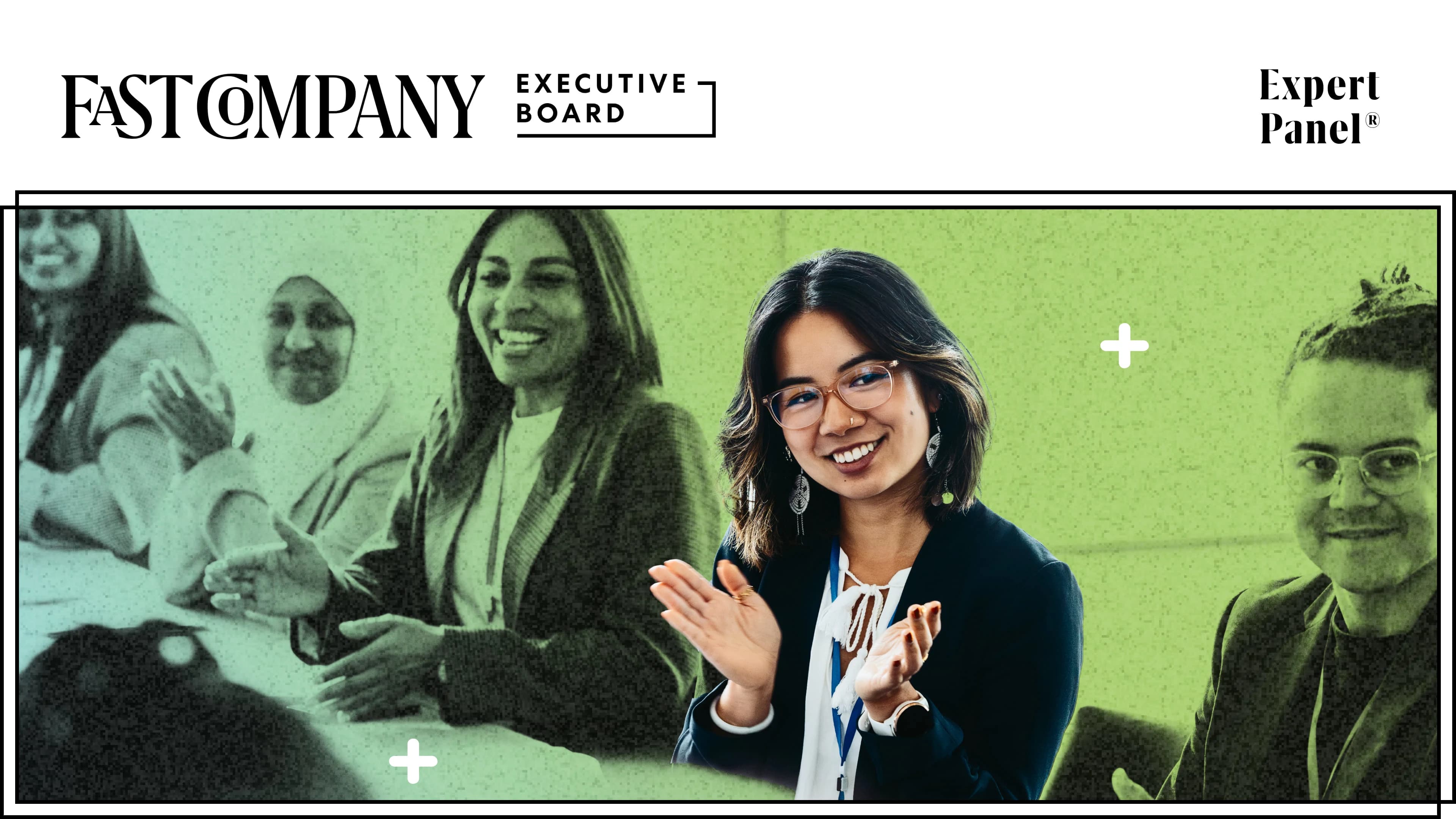
expert panel
Balancing global strategy with local nuance isn’t easy, but it’s essential for leading across cultures effectively. For managers overseeing teams across multiple countries, striking the right balance between global consistency and local autonomy can determine whether your team feels aligned or alienated. It requires clarity on what must remain uniform—brand values, strategy, success metrics—as well as the flexibility to adapt delivery, communication, and leadership styles to local norms. Leaders who master this balance can minimize friction while creating environments where innovation, trust, and performance thrive across borders. To that end, 17 members of Fast Company Executive Board share their top strategies for navigating this complex but critical dynamic.
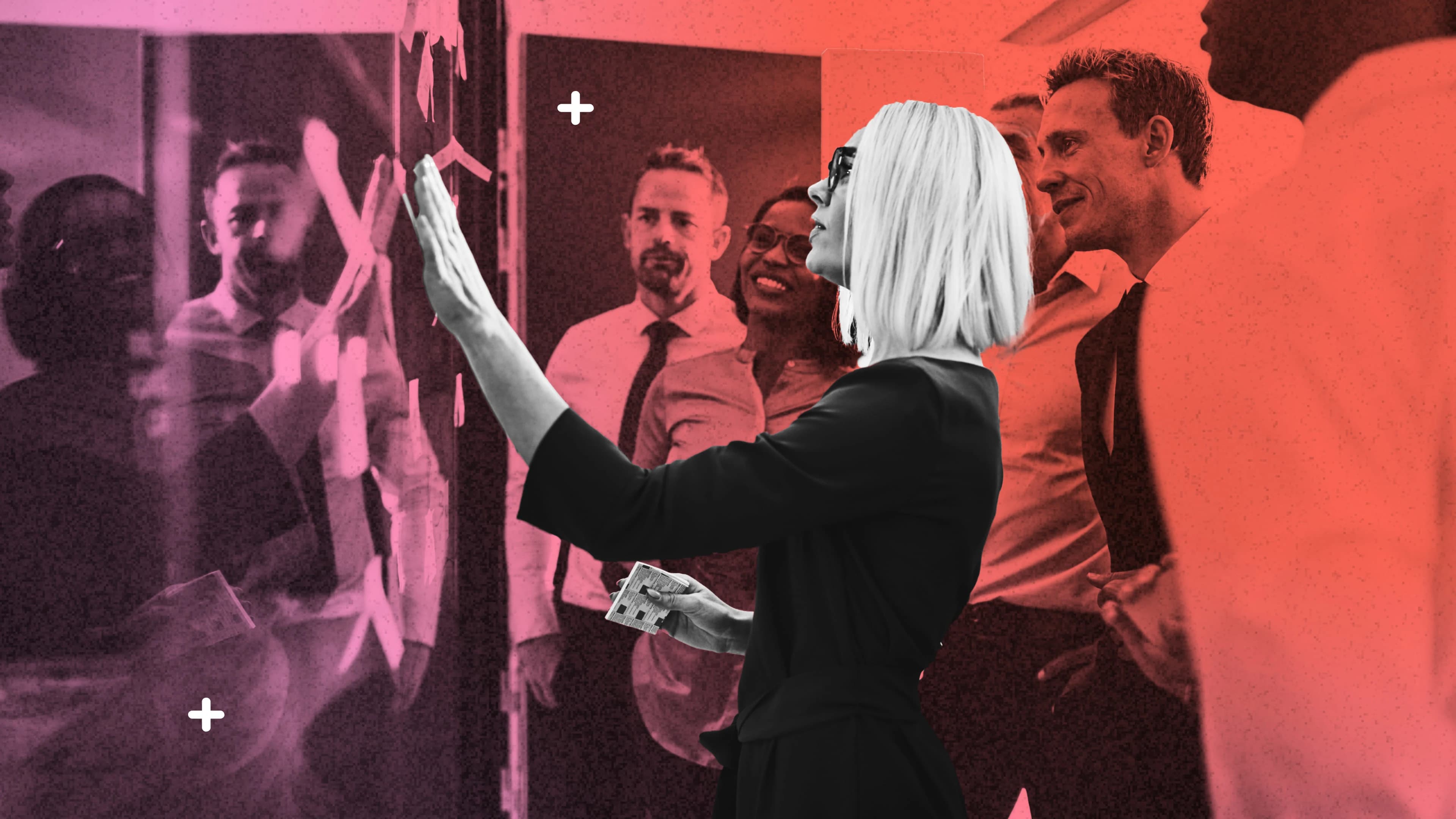
article
The most resilient organizations don't innovate despite uncertainty—they innovate because of it.

expert panel
With today's tech tools at their fingertips, business leaders and their teams are learning to redefine the creative process. Artificial intelligence has become an integral part of the design process in business, but how can leaders and teams incorporate AI without losing the essence of originality and human-driven creativity? Below, 15 creative professionals from Fast Company Executive Board each highlight actionable strategies they've taken to blend the strengths of AI-assisted tools with their human expertise. This approach allows design teams to stay innovative, maintain a unique voice, and leverage technology effectively. Bringing both aspects together is the key to creating designs that resonate with authenticity while embracing the future of design.

article
Here's why and how to turn “problem-solving” sessions into “problem-questioning."

expert panel
Are you getting a return on your high-tech investment? Here's how to determine the best digital solutions that will benefit your clients and stakeholders. To get ahead in today's marketplace, business teams must comprehend the benefits or pitfalls of specific technology in their search to solve client and staff pain points. Keeping up with the latest software gadgets can also cost a fortune. That is why it's best for companies to investigate their options before investing in a package that doesn't serve their clients or employees at all. Below, 14 experts from Fast Company Executive Board share their time and expertise to explain their approach to managing the cost and ROI of integrating emerging technologies they may choose to invest in.

expert panel
11 strategies to fund your brand's latest breakthrough without breaking the bank Establishing a thorough research and development process is the key to any product or service achieving local, national, or global marketplace success. But sometimes, coming up with an allocated "R&D budget" is easier said than done, especially when a company is already facing major budgetary cuts or working with limited resources. If the lack of finances is what stands in your team's way from moving forward on a great investment, 11 experts from Fast Company Executive Board suggest the following best practices to get your R&D stage off the ground without jeopardizing the organization's financial stability.

expert panel
Hold off on adding extra bells and whistles to the end product until you understand what customers need. There is plenty of hard work and excitement that goes into the launch of a new product before it hits the shelves. However, if the creative staff doesn't do enough research and focus on early feedback from their potential customers, it will be a disappointment if the end users don't find it functional enough to fit in with their current lifestyle. To help companies find a better approach to balancing innovation with practicality in their product designs, eight leaders from Fast Company Executive Board weigh in on what creative designers must keep in mind.
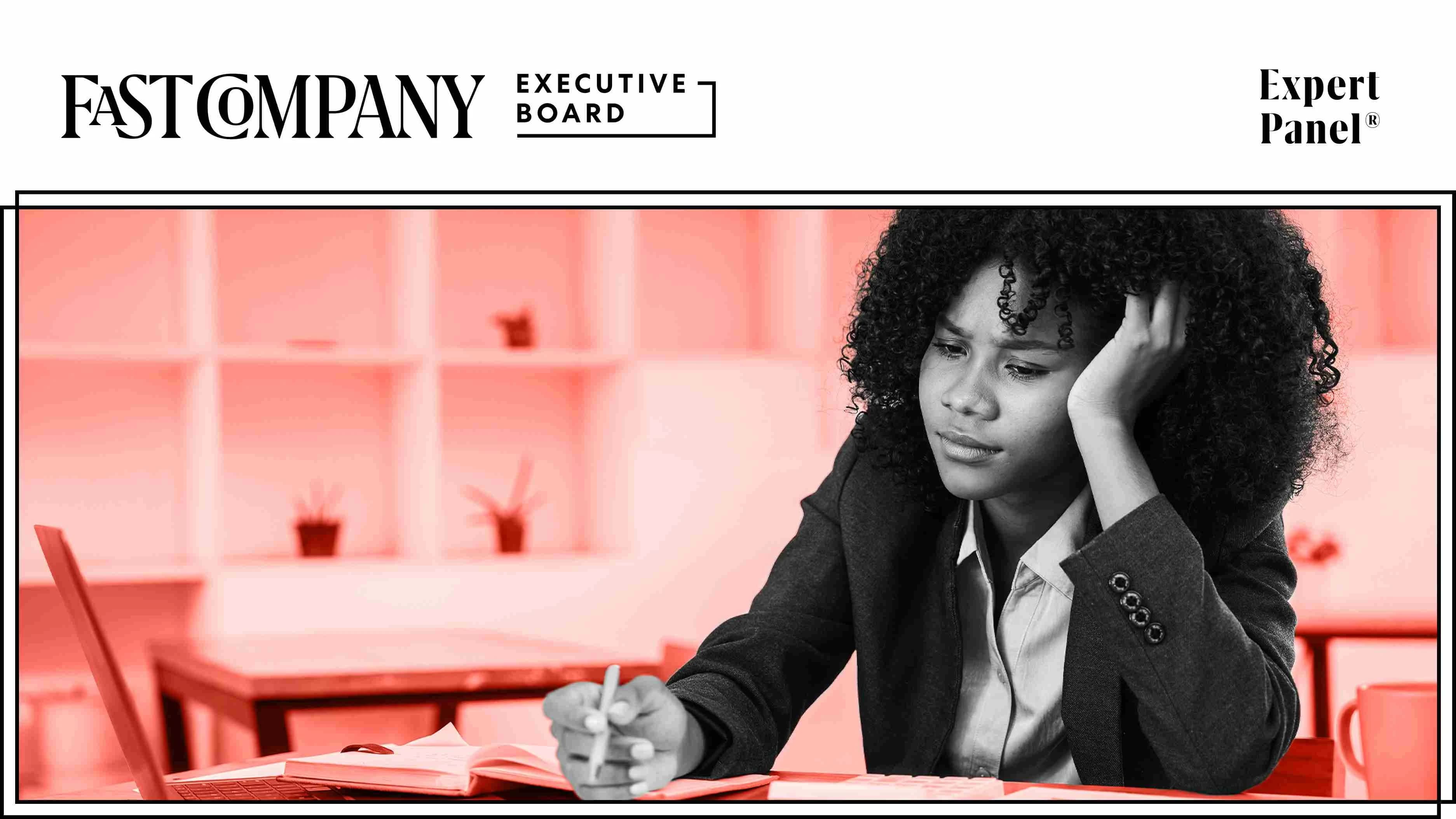
expert panel
If you’re struggling to spot disengagement, these expert strategies from Fast Company Executive Board members will help you re-engage your team. It’s no secret that disengaged employees can quietly impact a workplace's overall productivity and morale. From missed deadlines to declining enthusiasm, recognizing the subtle signs of disengagement is often the first step toward addressing the issue. The challenge lies in identifying these red flags early and employing effective strategies to re-engage your team before the problem escalates. Below, Fast Company Executive Board members share practical tips for spotting disengagement and actionable solutions to cultivate a motivated and committed workforce. Whether you’re a manager, business owner, or team leader, their advice will help you create a workplace where everyone feels connected and empowered.

expert panel
Here's how to introduce Innovation and team creativity alongside company standards. Oftentimes, in the business world, employees may be afraid to get creative or express themselves freely because they are certain their ideas will get shot down, especially if it's outside of traditional regulations. However, in the digital landscape that continues to evolve, company leaders must keep an open mind about potential ideas that may sound risky but could be exactly what is needed for the company to thrive in the long run at a rapid rate. Below, 11 members from Fast Company Executive Board each discuss one way employers can balance innovation with regulation to avoid stifling team creativity while ensuring safety and ethical standards.

expert panel
With the right structure, sharing business knowledge in the classroom can benefit seasoned working professionals and their students. Here's how to stay organized and energized while mentoring the next generation. If you are a business leader who is extremely passionate about your 9 to 5 duties, you may want to consider using your positive influence to encourage future professionals through an adjunct professorship role. One of the biggest challenges—whether teaching in person or online—is how to avoid burnout from working all day and teaching after hours. But when it comes to managing work responsibilities and personal lifestyle, the experts from Fast Company Executive Board have got you covered and know how to strike the right balance. Here are 16 tips to make the experience less stressful and more rewarding.
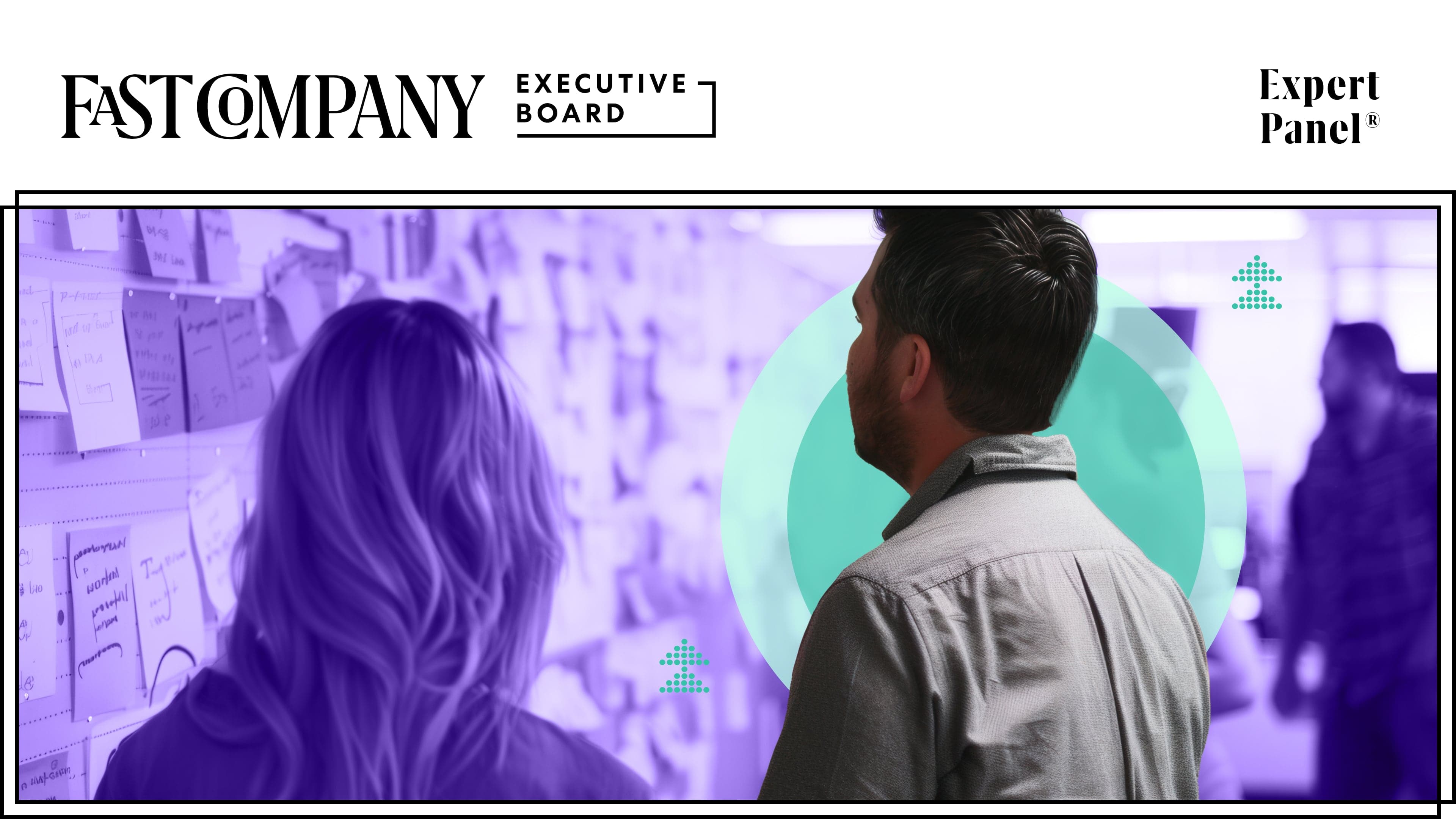
expert panel
Aug 22, 2024
Is your team in a safe space to collaborate and share? Maintaining a successful business in the marketplace not only depends on brand loyalty from customers but also on the creative health of the company's employees. Fostering a company culture that makes staff members feel psychologically safe enough to express their interests and brainstorm with others will also demonstrate how much their contributions to the organization are valued. To help business leaders create a better work atmosphere, boost team productivity and morale, and spark innovation to move forward together, 18 Fast Company Executive Board members each offer one tip that leadership teams can do to support their employees' creative health at work.

expert panel
Employee buy-in is key to delivering the right message to current and potential customers. In the growing world of misinformation and declining B2C trust, companies must remain vigilant to ensure the messaging their brand is communicating internally and externally is exceeding the core standards they truly represent and continue to live up to. Keeping employees educated about their role and stake in demonstrating their company's mission and goals through their daily work practices is essential to ensure alignment and engagement across the entire establishment. If your digital and traditional messaging strategies are not consistent with what the company stands for, 17 leaders from Fast Company Executive Board each offer one step to preserve the authenticity of marketing practices and company core values.

expert panel
Charisma can't always be taught, but leaders can still make a big impact without it. Not every impactful leader is a naturally charismatic "people-person." At its core, leadership is about connecting with and inspiring others, and this can be done through various approaches. Here, Fast Company Executive Board members explore how leaders can make a positive impact without forced charisma. If you’re a more reserved or introverted person, these helpful strategies can help you make a meaningful and positive impact on your team just by being yourself.

article
Why do so many professionals introduce themselves with nondescript labels and forgettable credentials? These may feel like safe ways to establish trust, but here is another strategy to consider.
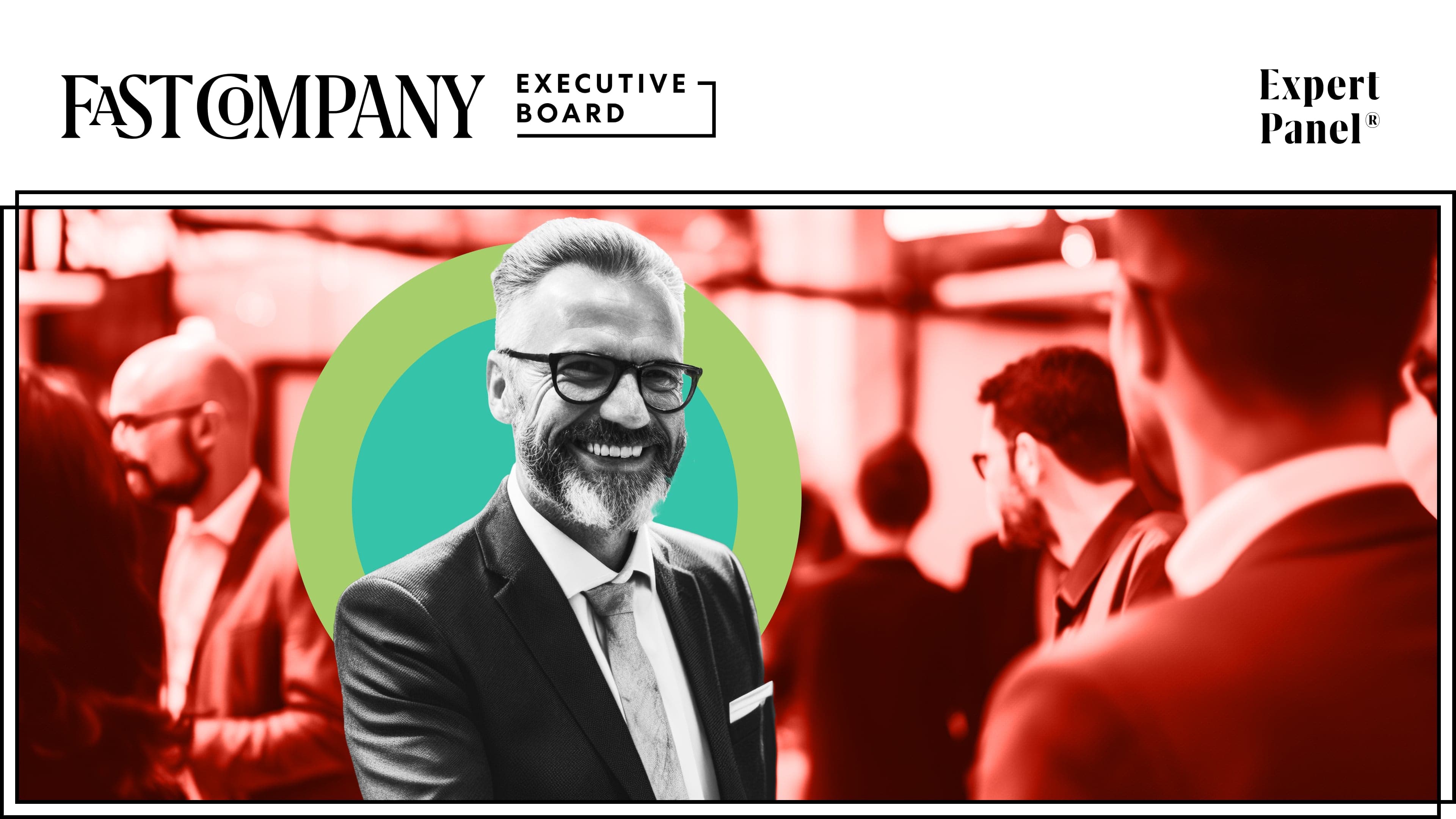
expert panel
Apply these strategies to leave a lasting impression. Whether you are striving to expand your personal or professional network, it's essential to create and nurture relationships that are not transactional. This is because, nine times out of ten, the majority of people will typically engage with people they feel confident around, can trust, and truly relate to in and outside of the marketplace. Here, 13 Fast Company Executive Board members each share their strategy to help industry professionals utilize networking to drive their business or individual career objectives forward, tactfully and authentically.
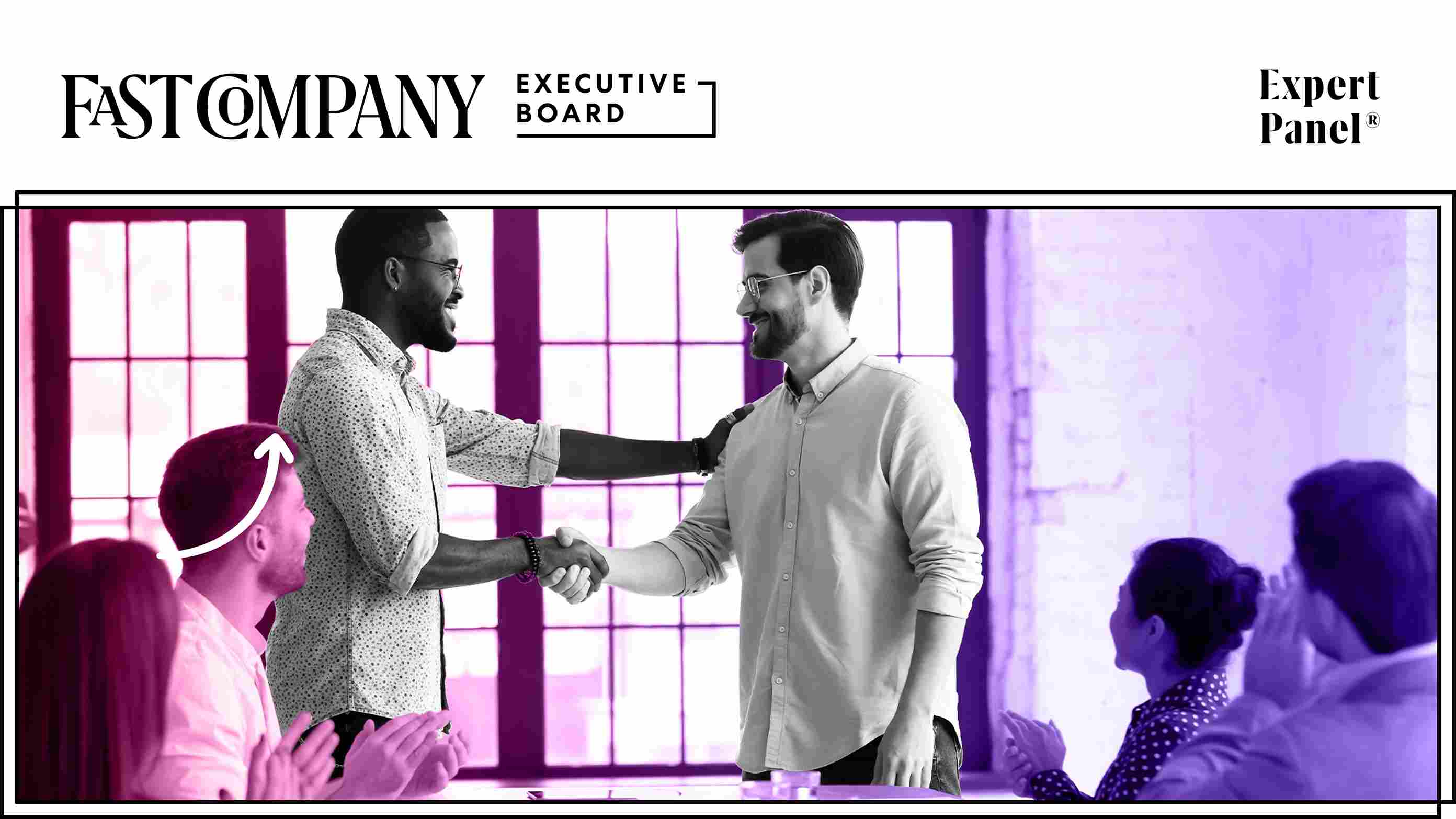
expert panel
Apply these emotional intelligence strategies to improve your department and company work culture. According to a survey published by Statista Research Department, 52 percent of organizations have employed senior leaders based on their emotional intelligence (EQ) skills. The ability to gain the loyalty of the team you are trying to lead successfully often relies on your willingness to actively listen to the concerns and aspirations of your employees. It's only then that you'll be able to access your staff's support and strengthen the type of team morale that can move companies forward. To provide some practical examples of what this type of leadership approach looks like, experts from Fast Company Executive Board explain how elevating their EQ has helped them to enhance their team relationships for the better and made them more approachable and trustworthy—a leader that their direct reports can trust.
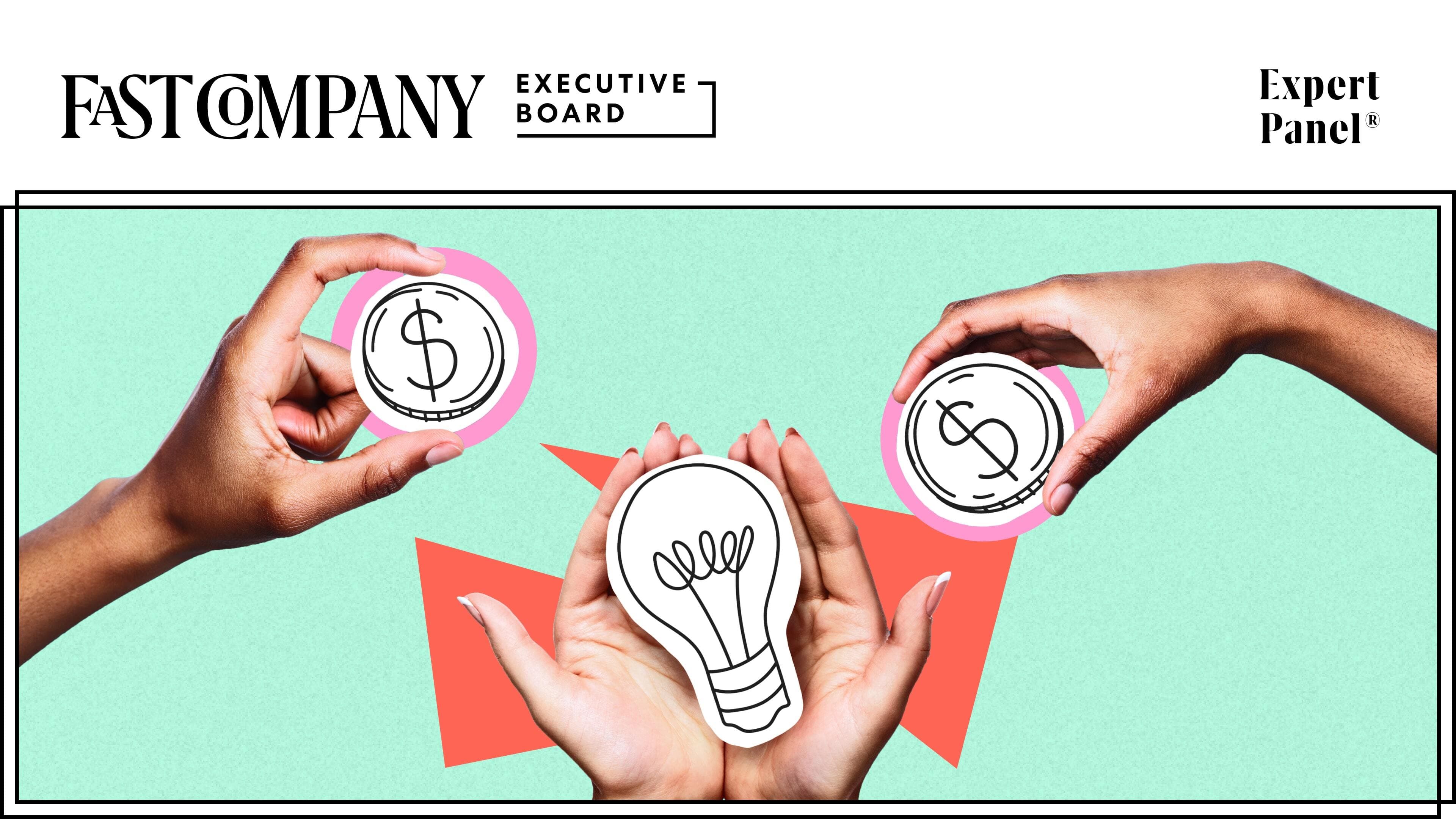
expert panel
Here's what 11 thought leaders suggest aspiring entrepreneurs consider before they go all in on a digital fundraiser. If you are trying to launch a business and are strapped for cash, crowdfunding is a viable option that many successful entrepreneurs have invested their time and hope in to get their new venture off the ground and running. The process of asking for help publicly on social media platforms may sound pretty straightforward, but there is a lot more at risk, including your long-term reputation. Below, 11 experts from Fast Company Executive Board offer one factor that every entrepreneur should consider if they are thinking about starting a crowdfunding campaign to launch their new business.

expert panel
Here's how managers can help their team showcase the added value they bring to the company and remain irreplaceable during tough economic times. As employee layoff announcements continue to loom across major industries, team leaders may be wondering how they can ensure the stability of their department's future at the company and avoid being replaced or eventually phased out. Here, 14 experts from Fast Company Executive Board weigh in on their best practices to help staff members stay proactive when it comes to highlighting their contributions to move the business forward long term.

expert panel
Jan 11, 2024
Amid performance review season, I understand the importance of embracing a holistic strategy that not only values individual contributions but also prioritizes fairness, open communication, and continuous improvement. To cultivate this for our organization, we refactored our system of growth from being a linear promotion process to one that allowed for more divergent growth paths. Having an "up or out" model didn't work for our company culture. Having a lattice-based (rather than a ladder-based) approach gave people more autonomy in the course of their careers. And we made our promotion logic more equitable by transparently naming the conditions for growth. To help other leaders, I asked members of the Company Culture Group of Fast Company Executive Board, a community I lead, how they improve equity and transparency in their review process. Here are important steps that they take and the impact they’ve seen from doing so.

expert panel
Implement these innovations to give yourself back the time you deserve. In business, the saying goes: "Why reinvent the wheel when you don't have to?" As the digital revolution continues to rise, there are so many new technologies available at our fingertips to make work and home life more efficient. Here, 20 Fast Company Executive Board members discuss one innovation that has influenced and improved the way they balance professional and personal responsibilities each day.

article
Here are nine considerations for your personal strategic advocacy plan.
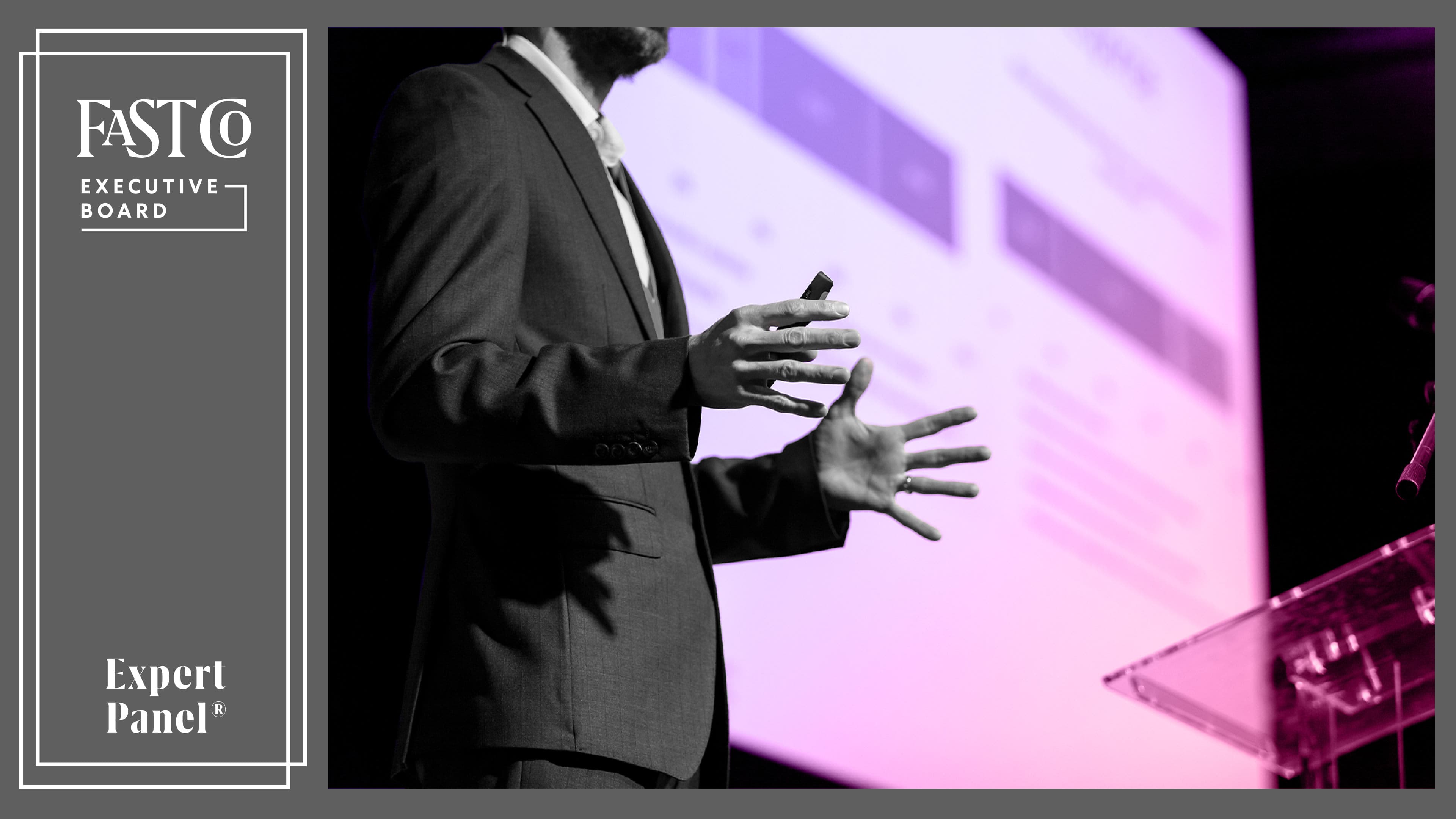
expert panel
Applying the "show, don't tell" method in today's digital world can work wonders if you want to build your sales pipeline. When your sales and marketing team members are gearing up to promote your organization at a yearly in-person or hybrid-remote industry convention—in the new normal, it's always important to figure out the best strategy to effectively rise above the competitive noise and capture the attention of your target audience. So, how can company leaders elevate learning opportunities for current and potential customers to gather and retain information about their business products and services in the most efficient way? Below, 12 Fast Company Executive Board members share tips to keep consumers engaged and interested in what your brand has to offer, showing them why they should stick around to hear more and possibly give it a chance rather than moving on to another vendor.

expert panel
If you're about to apply, consider these key points. There are a variety of resources available for new entrepreneurs to consider when they are just starting out and trying to grow a successful business in their market. Associating your business with either a startup incubator or accelerator program is one idea to consider if you are looking for opportunities to connect with mentors, technology tools, and more to elevate your organization to its next level. We asked nine experts from Fast Company Executive Board to each discuss one factor that every rising leader should consider when they are weighing their options about which route to take.

article
Why do organizations struggle to close the gaps between what their customers need and expect, and the current reality of the experience their organization delivers?

expert panel
Giving every staff member a seat at the table can increase business morale and business growth. It takes a village to build the type of team morale and trust it takes to lead a company to innovative success and long-term profitability. So if you are trying to strengthen staff relations and foster a better work environment that enables every employee to have a voice, don't go it alone, be willing to have an open mind and lean on them for support. By encouraging regular brainstorming sessions with your team to guide your decision-making process, you'll be a better informed, confident leader, knowing that your staff is working together (and truly has your back) to elevate the company further in the years to come. Below, Fast Company Executive Board members share other reasons why employee feedback and collaboration are fundamental in helping leaders make better all-around business decisions.
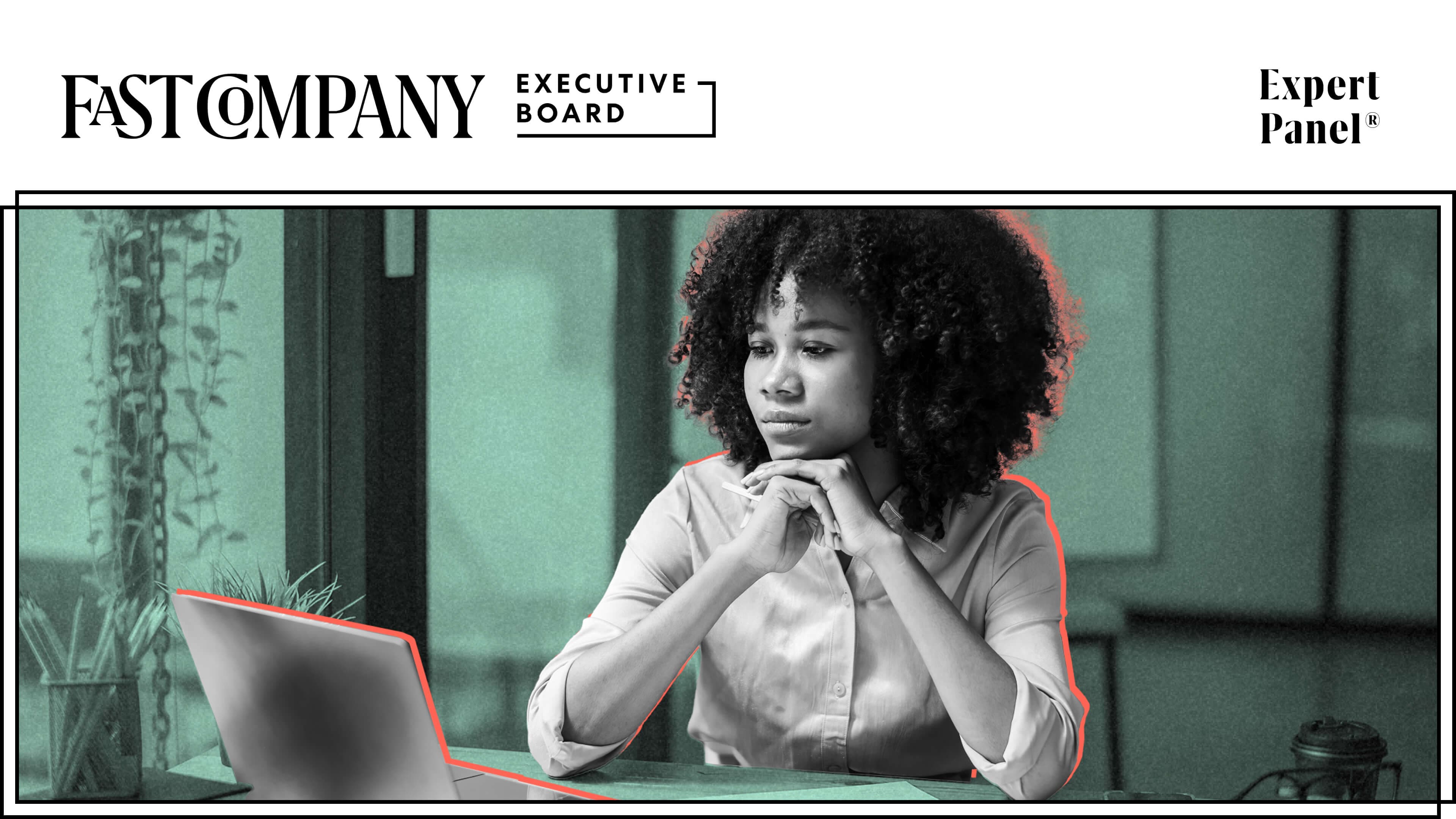
expert panel
In the ever-changing tech field, staying on top of industry trends is essential for career and business success. Technology is constantly evolving, with new innovations and advancements being introduced regularly. It's essential for professionals in the tech industry to stay up to date with these changes to remain competitive and relevant. However, keeping up with industry changes can be a daunting task, especially as the pace of technological development continues to accelerate. Below, a panel of 15Fast Company Executive Board members shared some of the most effective ways to stay informed about the latest trends and developments in tech, so you can stay ahead of the game and continue to excel in your field.

expert panel
Apr 11, 2023
Preparing adequately for a team collaboration and brainstorming session is essential to ensure that everyone is on the same page and that the session is productive. Collaboration and brainstorming are critical components of many successful projects. However, they can be challenging to execute effectively. Below, a panel of Fast Company Executive Board members offers some tips to help you prepare for a team collaboration and brainstorming session that can lead to more successful outcomes. Whether you're working on a project with colleagues or leading a team, these tips can help you get the most out of your collaboration and brainstorming sessions.

expert panel
If you don't want your team's eyes to glaze over every time they see an email from you in their inbox, then apply these internal communication strategies from leading experts. Internal communications are essential for keeping employees informed and engaged, but getting employees to read and keep up with the messages can be a challenge. That's why, as a leader, it's important to craft communications that are clear, concise, and relevant to the audience. By doing so, you can ensure that employees feel valued and informed, which can boost morale and productivity. To help you achieve this, try these expert tips for writing internal communications that employees will actually read and keep up with, as recommended by the members of Fast Company Executive Board.
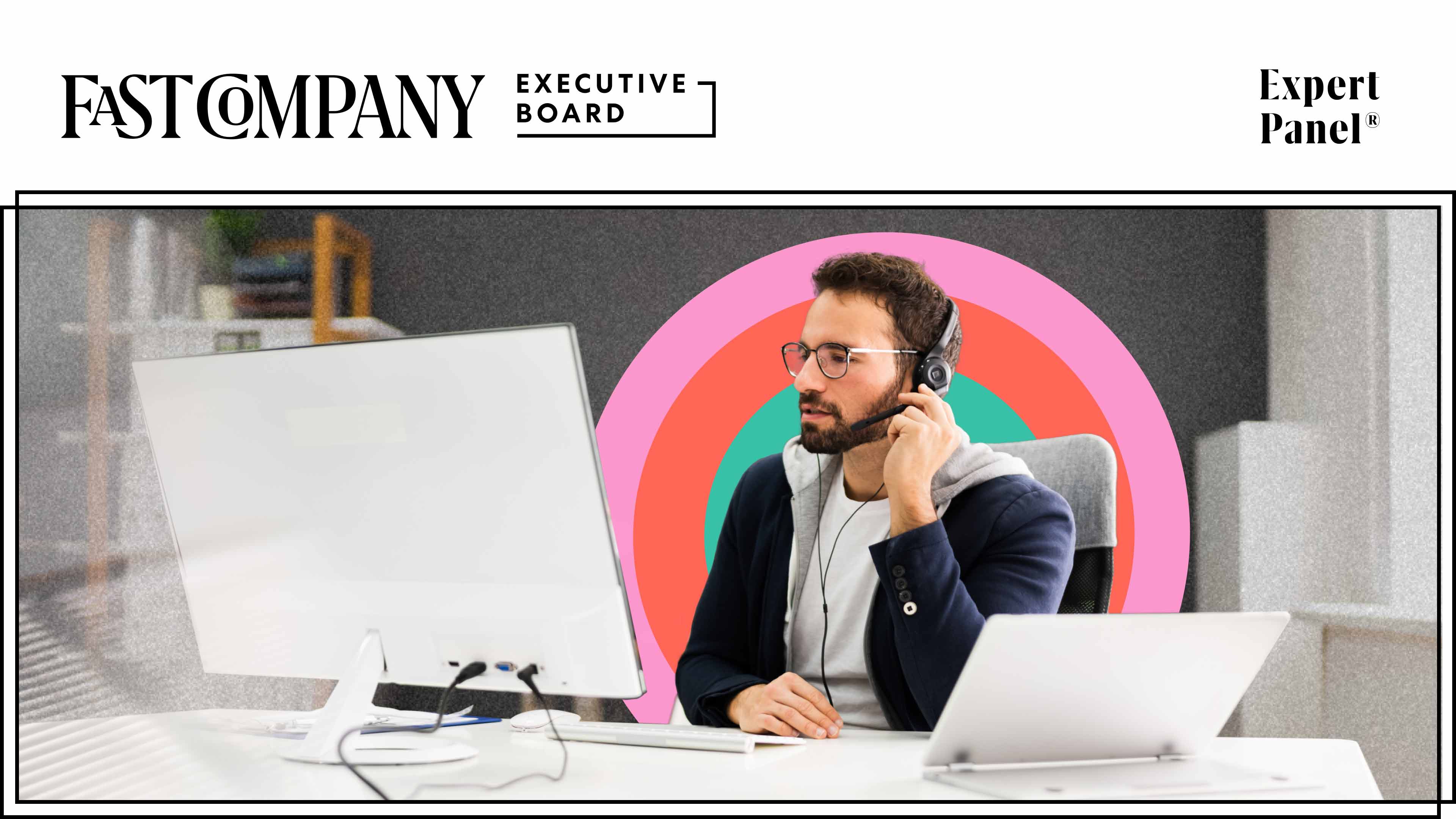
expert panel
A successful webinar will engage, educate and possibly persuade its target audience and keep the host top of their mind for their future needs. Webinars have become an increasingly popular tool for businesses to engage with potential clients and customers. However, simply hosting a webinar is not enough to ensure success. To make a lasting impression and achieve desired outcomes, businesses must use best practices to create engaging and informative content that resonates with their audience. Whether it be educational or persuasive, effective webinars require careful planning, preparation, and execution. To that end, 15 Fast Company Executive Board members weigh in on some of their best practices for hosting webinars that are useful, relevant, and valuable for potential clients and customers.
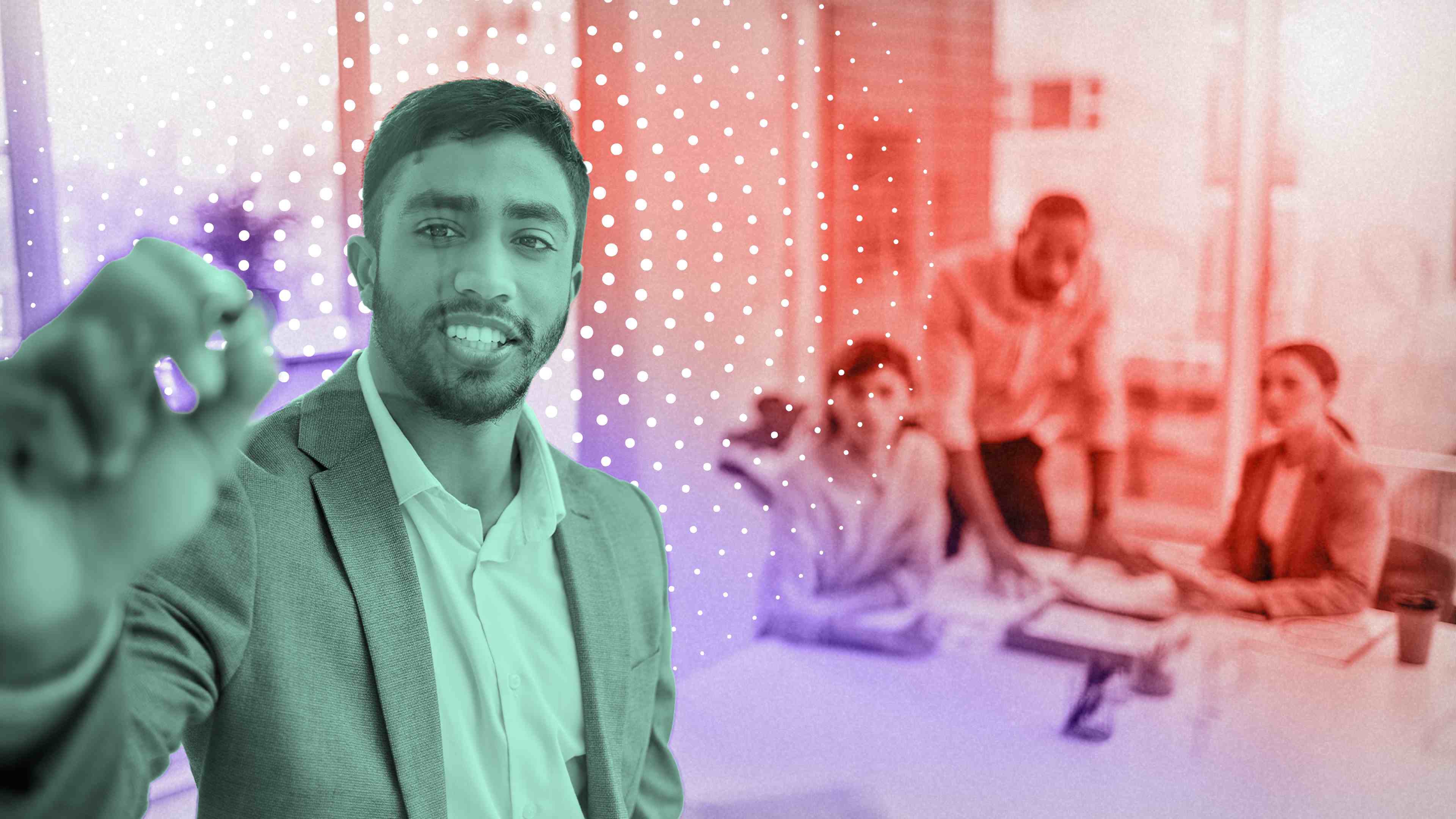
article
Times of change demand that leaders challenge their practices and beliefs. This is a time to learn, unlearn, and relearn habits, behaviors, and assumptions.
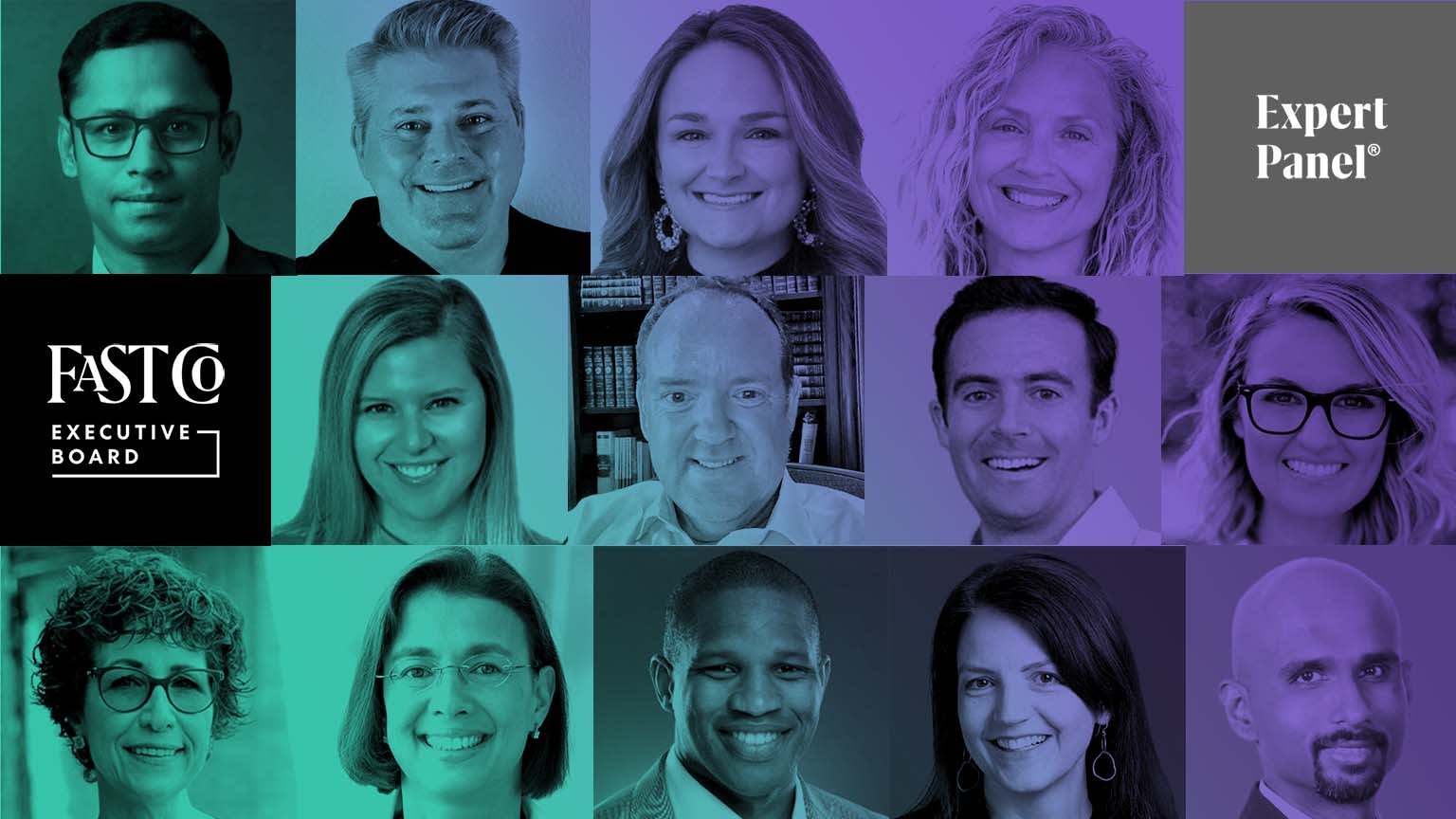
expert panel
Is your team truly benefiting from the current paid-time-off policies in place? In a hybrid work world where place and time flexibilities are a growing priority among current and potential employees, some employers are weighing in on the topic of PTO benefits. While it's important for companies to create work-life balance options and address the needs of their people, department leaders must also have candid conversations with their teams on performance expectations and the amount of time spent away from the office to prevent any business disruption. Trying to decide on whether to create individual policies or vacation, sick time, and other forms of leave versus offering an all-inclusive unlimited PTO package? Here are 13 details to keep in mind, courtesy of Fast Company Executive Board members.
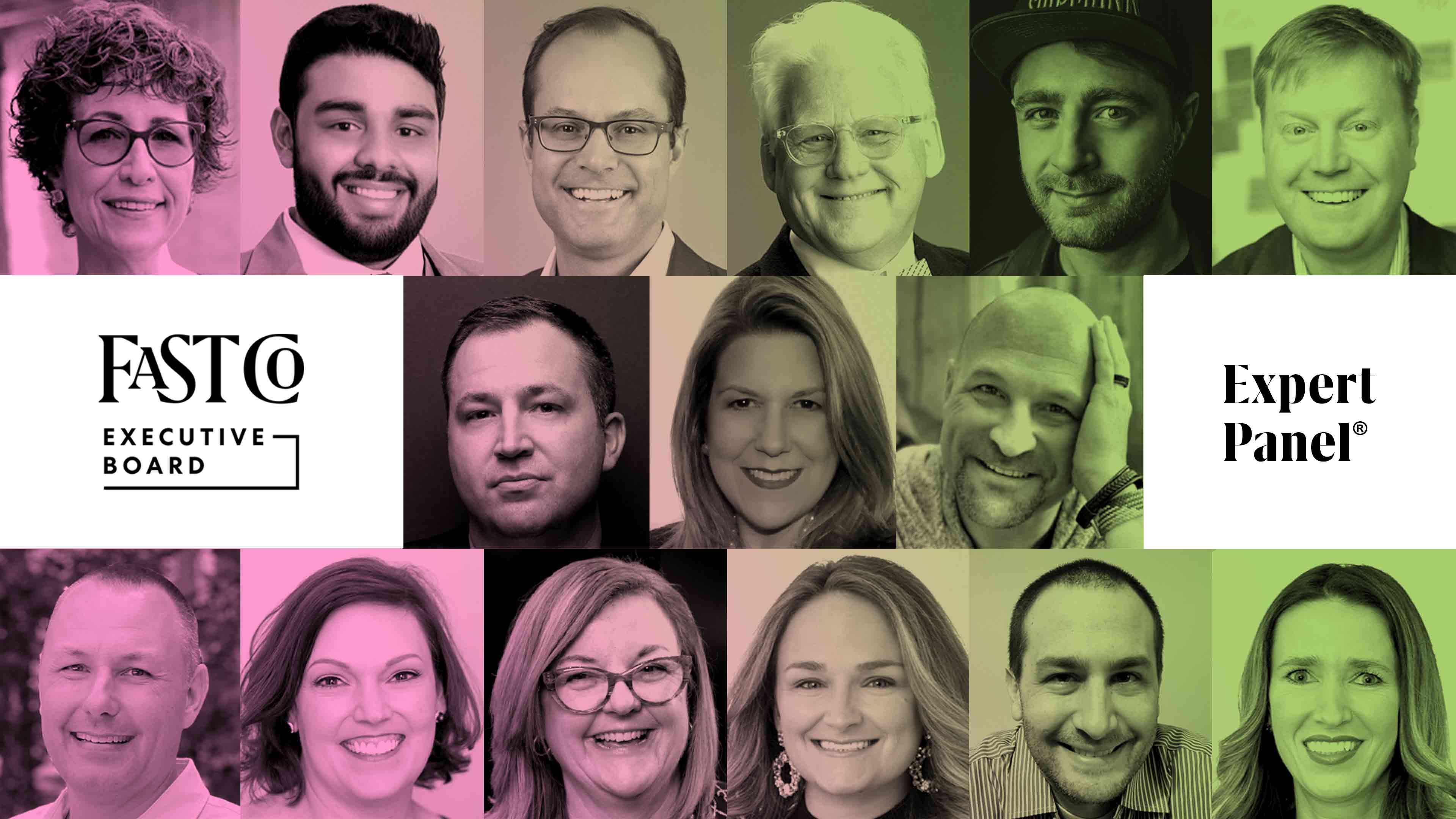
expert panel
Apply these strategies to cover your points and connect with the audience. If you're feeling a bit anxious about how to deliver your best presentation to a tough audience, preparing for the event ahead of time is the easiest way to calm your mind. You'll want to first gain an understanding of what the program agenda is, and then figure out what you want to say. Providing real-world examples make some of the most effective narratives, so figure out which points to cover in your story, write it out, and begin reviewing it on your own or amongst your network of colleagues. The more you practice, the more familiar and comfortable you become with the materials you plan to share with your audience. To get you motivated and help you stay in the zone, below, 15 Fast Company Executive Board members are providing their best practices for leaders to project their knowledge and become the go-to reliable source.

expert panel
Here's how employers can find a charitable organization to sponsor this holiday season and beyond. During the holidays, in particular, many company leaders often consider how their establishment can lean in to assist with funding or volunteer its time to support a charitable cause, in the spirit of giving. But what is the best way to choose the right partnership with a reputable foundation that makes the most sense and enables your organization to do the most good? Below, 11 members from Fast Company Executive Board are sharing their tips to help you get started, whether you plan on giving back for a season or throughout the entire year.
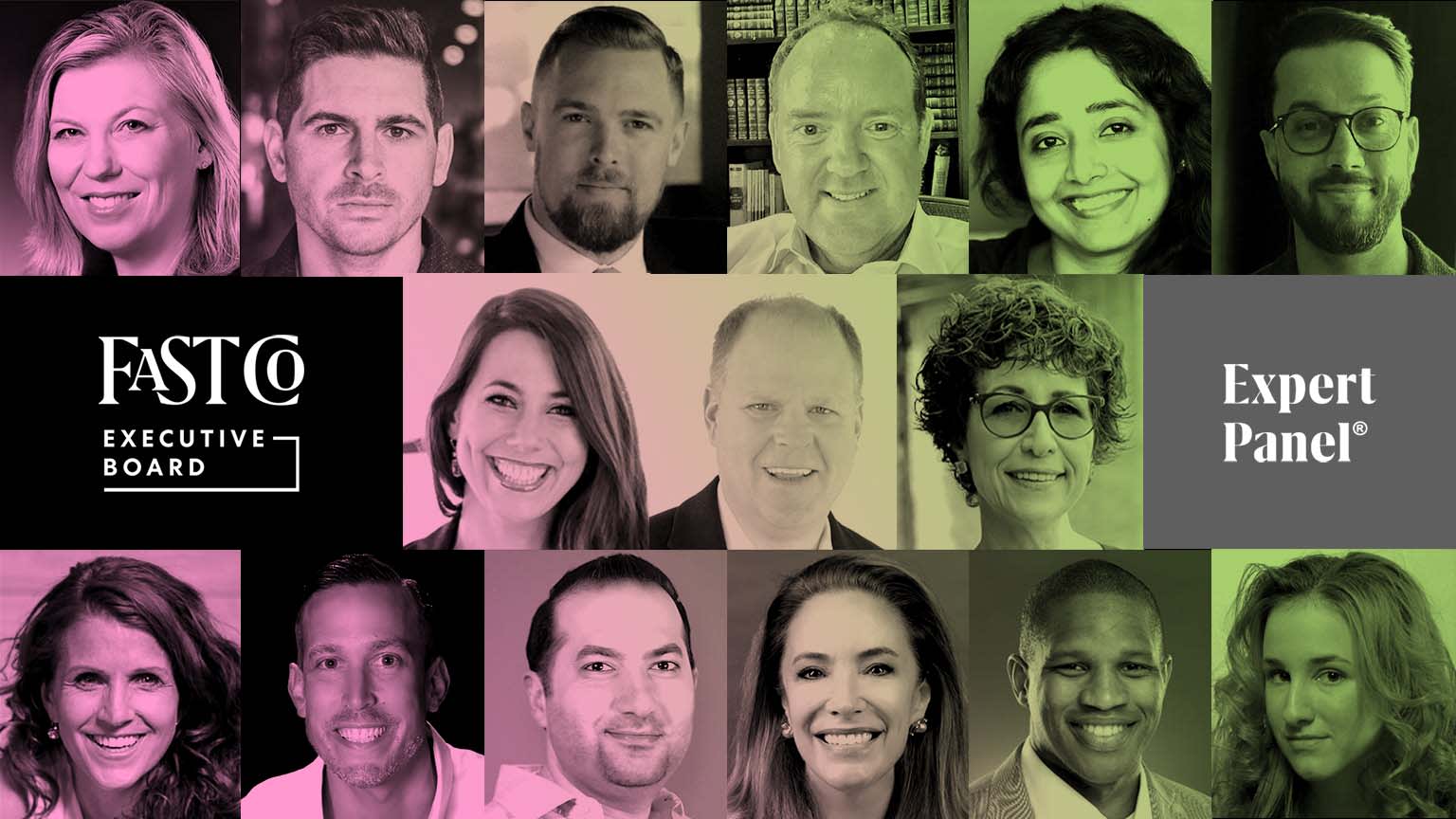
expert panel
Here's how to build a pipeline of services to address your department's needs. In a gig-driven economy, it's essential to find highly-skilled freelancers who are willing to handle extra assignments during a busy season for your team. Be selective about your decision when reviewing the feedback of the consultant's previous and current clients. And, based on the expectations about the job requirements, keep an open line of communication so that everyone is on the same page. Below are 15 best practices, courtesy of Fast Company Executive Board members to help leaders to attract a diverse group of candidates and retain them for future projects.
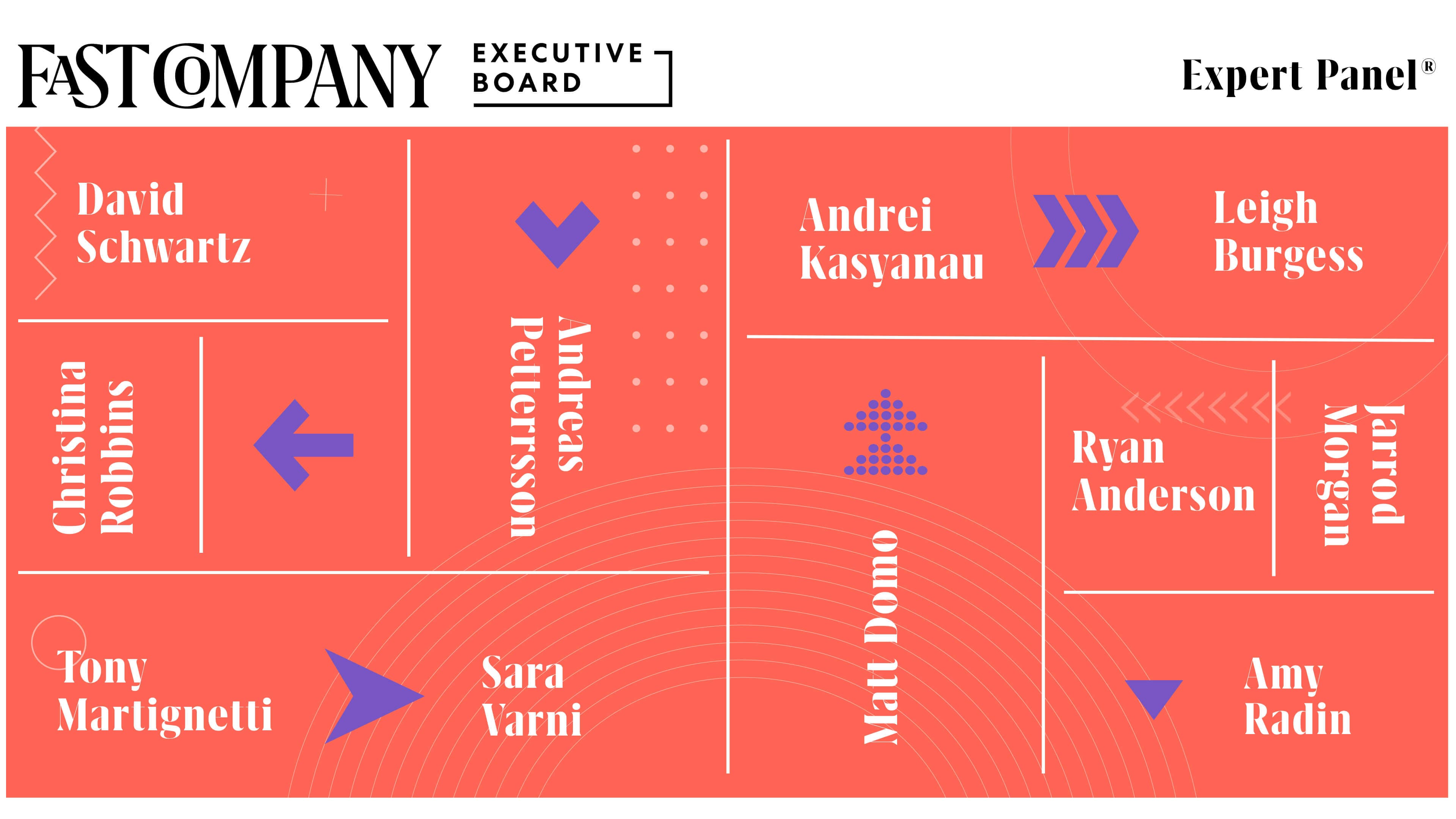
expert panel
Try these techniques to foster open, productive, and positive conversations that benefit every stakeholder. Your ability and willingness to understand your client's wants and needs are essential if you want to remain in business and continue to build a solid foundation for your brand. But, remember that maintaining a reliable reputation in the industry has everything to do with human relationships and how you treat the people you interact with on a daily basis. So, the more your company is able to make the lives of its customers easier and meet their needs, you are more likely to win their trust and business for the long term, whether there is a challenge to help them overcome or a victory to be celebrated. Below, Fast Company Executive Board members share their most useful strategies to promote customer satisfaction and create a win for all.
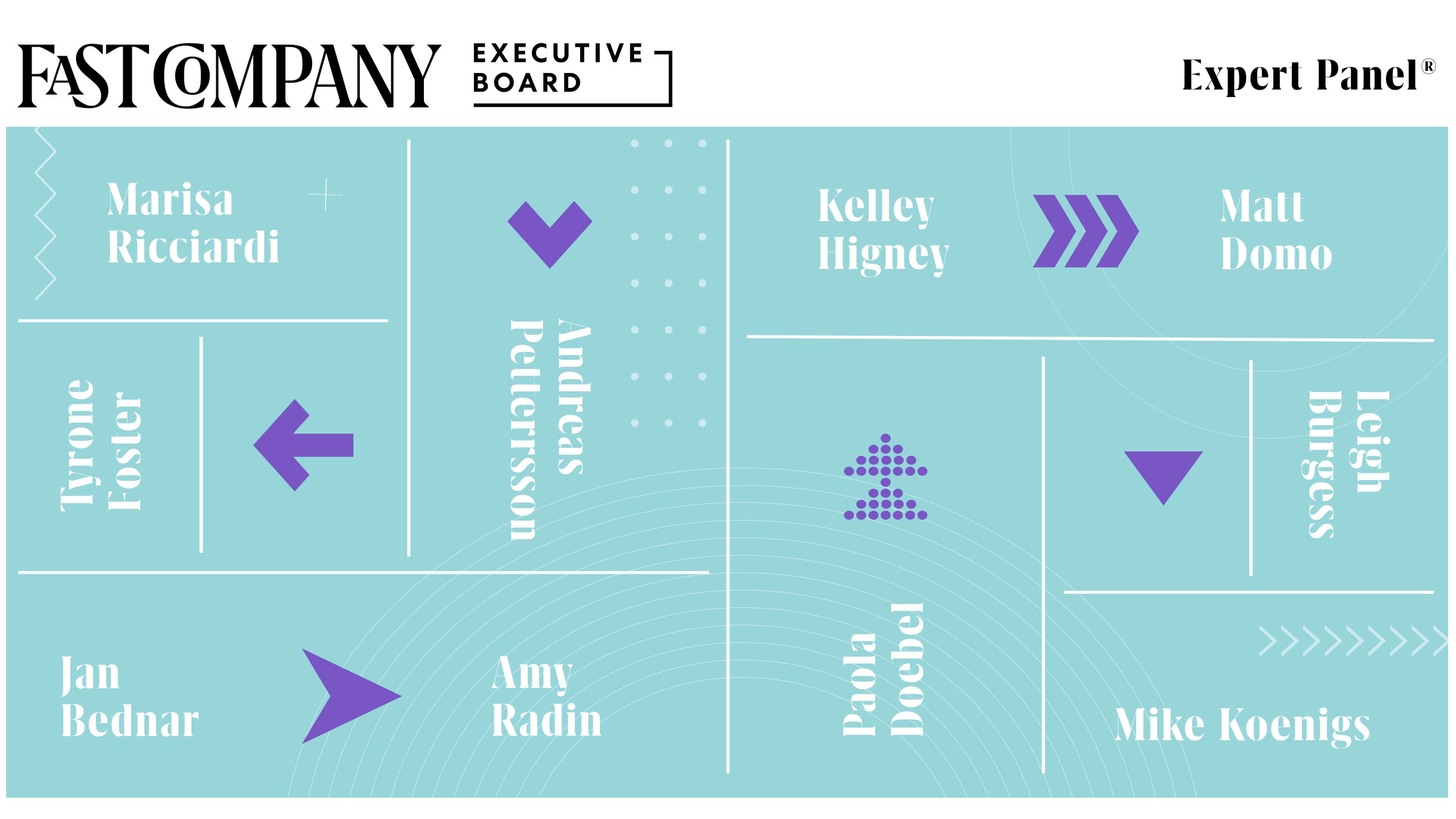
expert panel
Prioritze solutions to improve your customers' journey. During and beyond the global health crisis, plenty of corporate leaders and small business owners alike, have readjusted their thought processes on how they do business. Some began to streamline certain aspects of their product and service offerings to improve bottom line outcomes so the establishment could not only survive in an uncertain and evolving economy but thrive and continue to shine above their competitors. Here, 10 business leaders from Fast Company Executive Board weigh in on what their top strategies have been for streamlining their company's focus and how doing so is impacting their clients' positive engagement with the business.
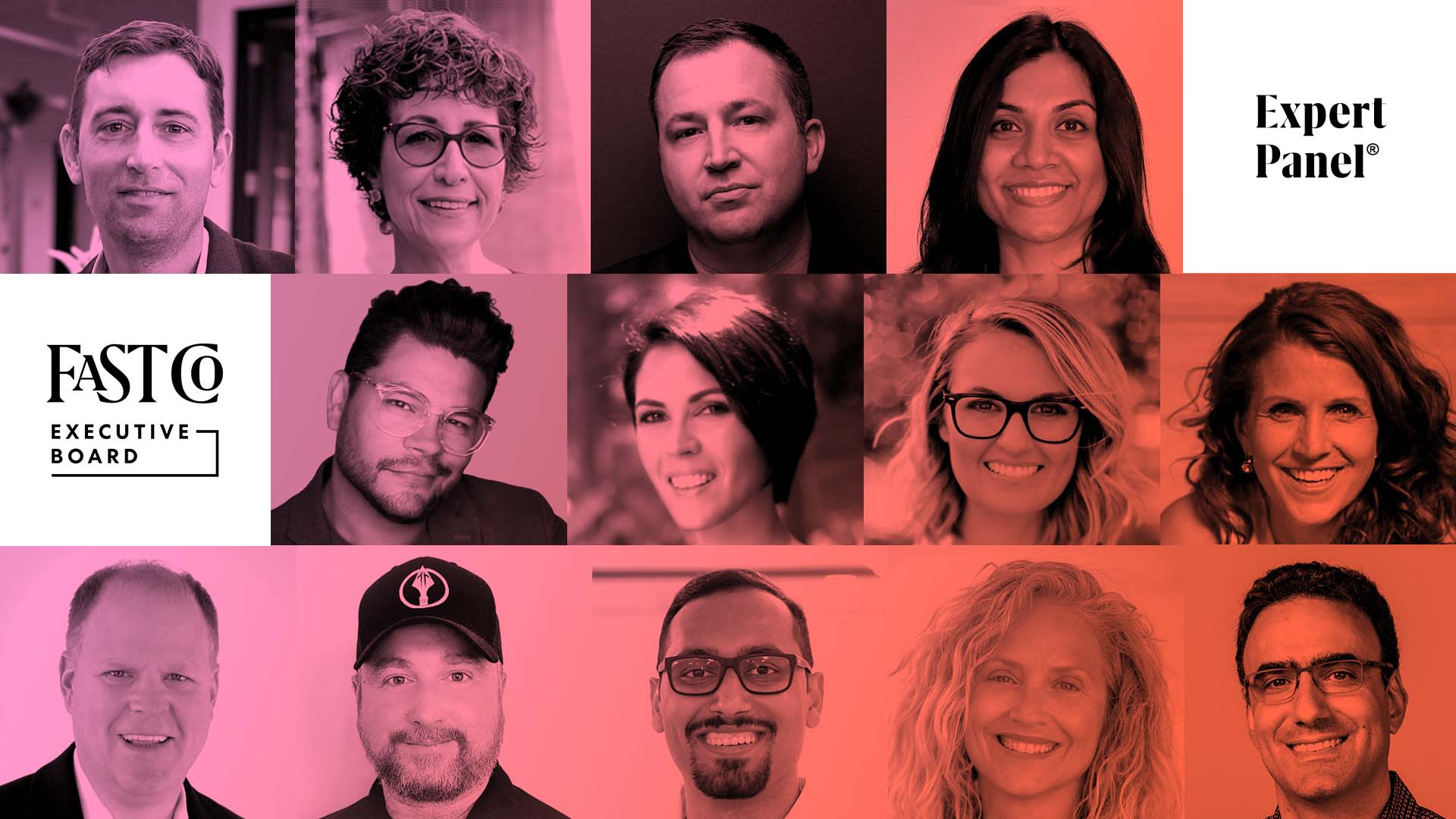
expert panel
Implement the following strategies to form better alliances for your products and services. When you're running a business, the only way your company will be able to elevate itself in the marketplace for the better is by being extremely open to constructive criticism and new ideas. Encourage a company culture that is transparent with leaders that practice active listening skills if you plan to connect on a more meaningful level with stakeholders who will advocate behind what your business stands for as you lean in to help meet their ongoing needs as well. For further ideas on how to get honest feedback from current and potential clients, Fast Company Executive Board members share some proven methods that continue to serve their company well.
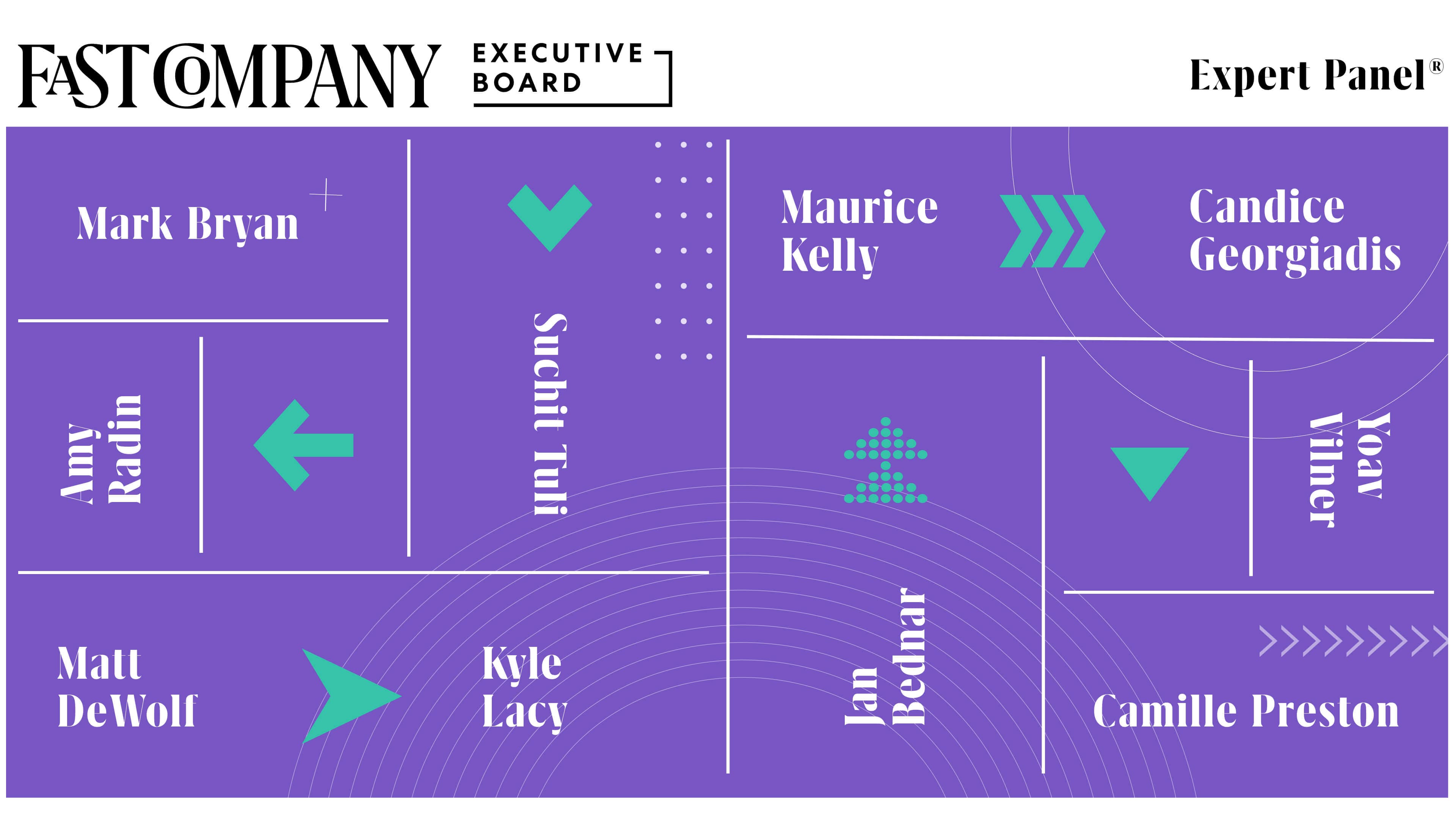
expert panel
Jun 2, 2022
Here are 10 tips to help leaders decide on the best next steps to level-up business. If you're looking to upgrade your company's image or improve on the pattern of behaviors it is widely known for in the marketplace up until now, there are plenty of factors to evaluate before making a decision to promote the rebranding of your business. Be clear on what it is that you truly plan to accomplish and why. Then do your research even further to make sure it's the right plan of action for you now and if now is the best time to do it. By examining these few points, you'll be setting your team up for successful wins each time. Fast Company Executive Board members advise leaders on how to start with just some minor adjustments to improve your business effectively before moving on to invest in a major overhaul that you may not be prepared for to move forward with as quickly.

article
Executives are on the move.

expert panel
Apr 8, 2022
Here are 15 tips to boost your confidence level and communication skills. Whether you are just starting out as the founder of a new small business, or a C-level executive leading staff members in a corporate setting, commanding the crowd's attention during a monthly staff meeting or a yearly business conference engagement, can be intimidating for some. To overcome the fear of presenting ideas among your peers in a public workspace, continue to participate and practice at low-stakes events with every opportunity that comes your way. By doing so, you'll become a skilled, sought-after, and successful thought leader in no time. Below, 15 Fast Company Executive Board members share their best techniques to help leaders reduce the signs of nervousness and deliver effectively during virtual (or on-site) discussions.
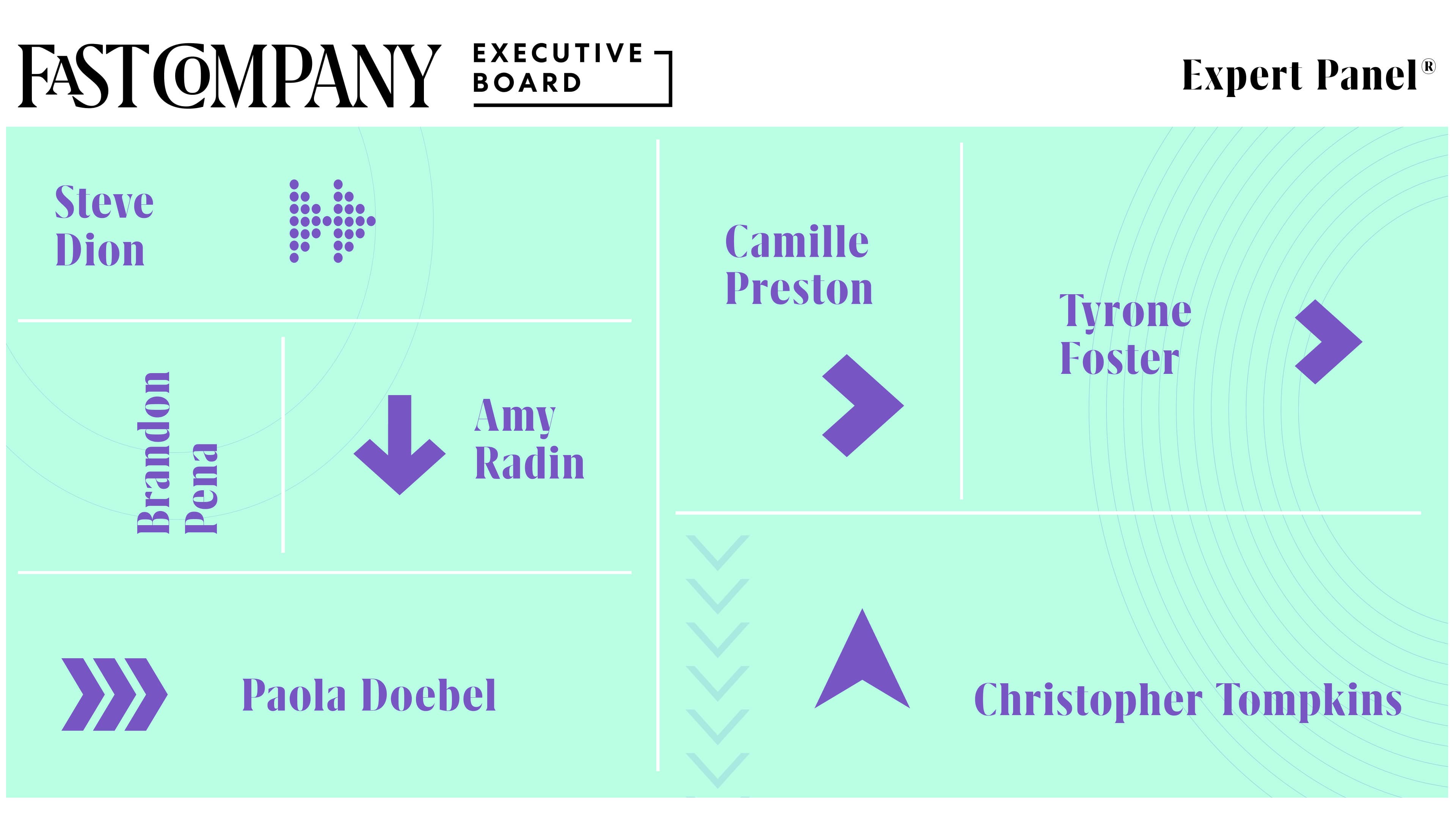
expert panel
Seven points to ponder—whether you are ready to focus on other parts of the business or want to distance yourself completely from the company. After years of building a career and maintaining a successful brand in the business, it may be a difficult choice to walk away from your role as CEO—even though you've outgrown the position and are seeking new challenges away from the day-to-day tasks. Before you determine how to repurpose your passion for business, you must assess the state of your organization, its current systems, and processes to help your team continue to prosper once you've made a graceful exit. To assist you with tips and next steps for planning a smooth leadership transition, seven Fast Company Executive Board members weigh in on some key factors to consider on your way out the door.
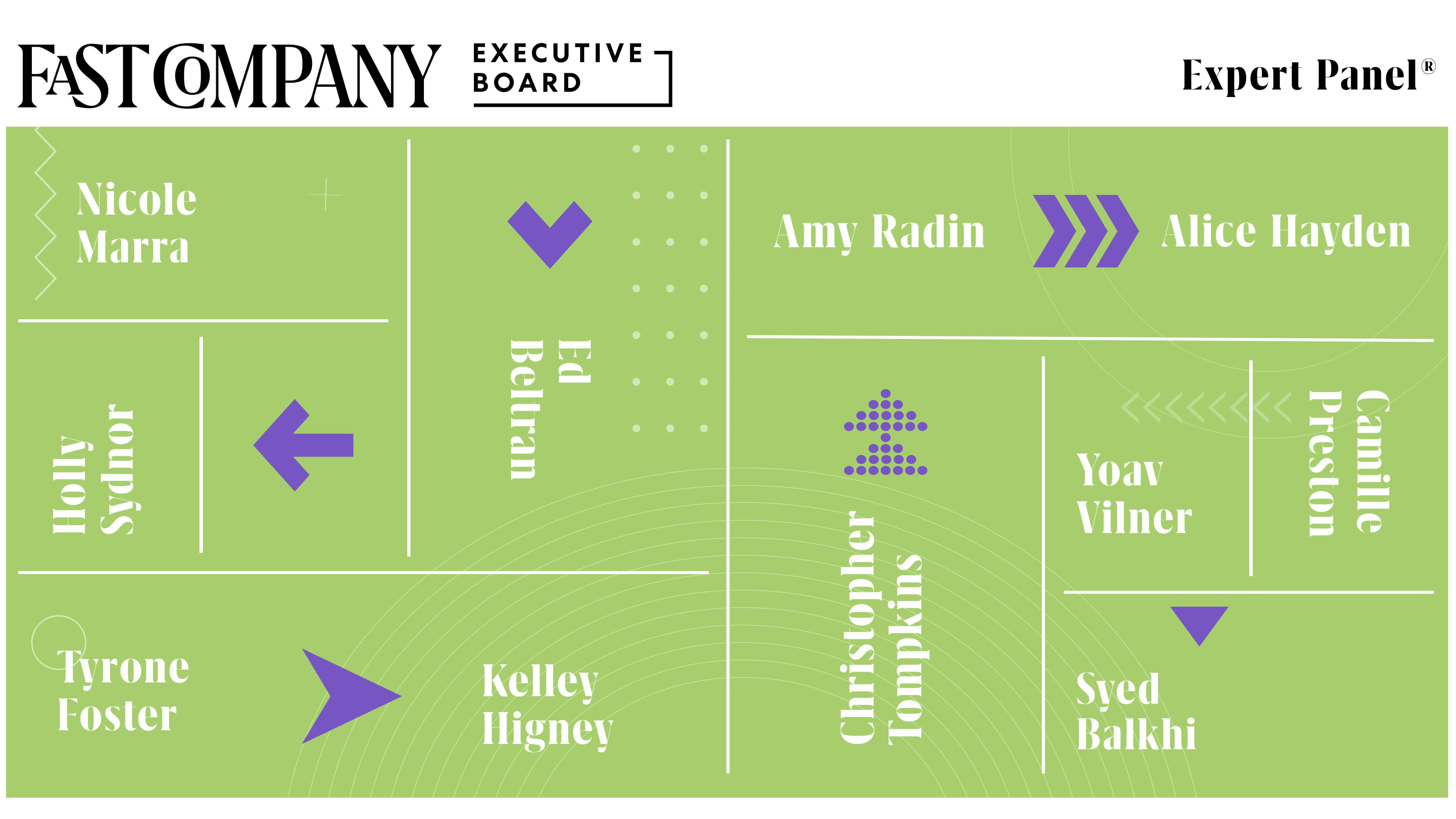
expert panel
Here's what ignoring industry feedback can teach you. While it's practical for business leaders to lean on each other for inspiration and advice in the marketplace, sometimes the feedback is based on opinions, less driven by the facts. That's a red flag to go with your instincts and continue to do your own research. If you want to thrive in your industry, it's important to gather a diverse set of information and reach out to your network, but remember that it's you who has the final say when it comes to making the right decisions that will serve your company well. Below are 11 positive lessons that Fast Company Executive Board members have learned by ignoring negative feedback they've received during their time in the business world.
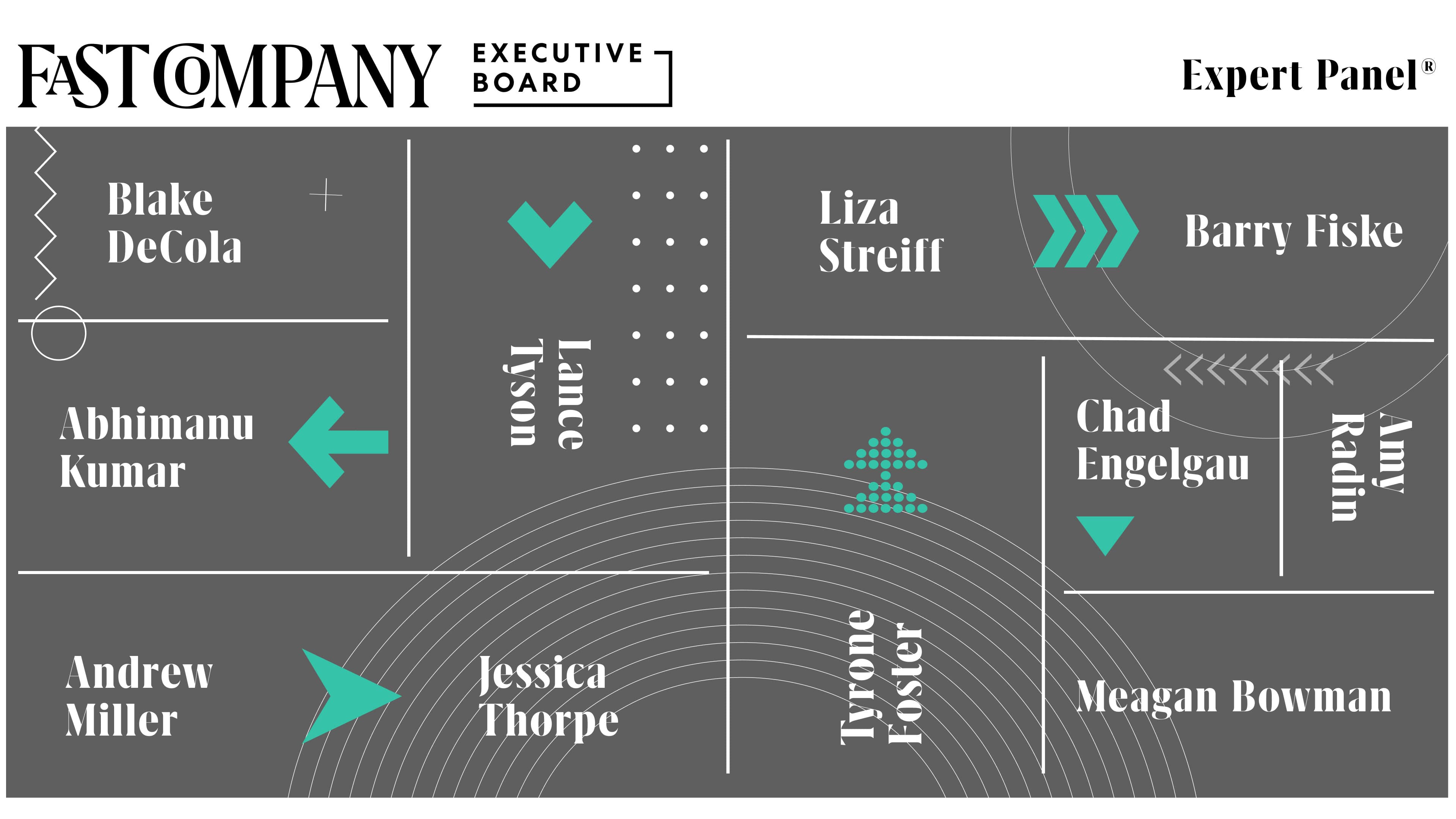
expert panel
Here's how you'll reap the benefits of hiring an SEO or marketing firm to improve your company's digital presence. When it comes to a company's ability to rank the highest on the internet and get the attention of new customers, there is no one-size-fits-all strategy for branding a business. If you are considering how your company might benefit from partnering with an SEO or marketing firm that has the potential to boost your underperforming KPIs, you'll need to set clear goals upfront about everything your business needs if you want the agency to live up to your short- and long-term expectations. Here are 11 tips, courtesy of Fast Company Executive Board members, to help executive leaders receive a better return on their investment.

article
Jan 21, 2022
Enterprise finance professionals are being challenged to become more proactive, strategic advisors.

expert panel
Negativity on the job leads to critical issues for leadership and their staff members. Enabling a toxic environment in the workplace may result in the tarnishing of the professional reputations of the parties involved or the company's downfall. Still, many managers choose to turn a blind eye, and subordinates are too intimidated to bring the office drama to their leader's attention. To help supervisors and their direct reports nip their concerns in the bud, 16 Fast Company Executive Board panelists provide key signs of a toxic environment and share some practical advice for management to consider as they try to clean up the workplace.

expert panel
Give the right leaders a creative space to help move your organization forward in the new year. As business heads contemplate on industry trends and begin to look at what's in store in their industry for 2022, now is the time to get executive leadership members on the calendar for some exciting brainstorming sessions that will keep the company ahead and move it in the right direction. Some simple and out-of-the-box thinking may spark more productive conversations, support smarter strategic planning, and get fellow colleagues excited about the collaborative process in the year to come. That's why 15 expert panelists from Fast Company Executive Board are sharing creative ideas to make a memorable impression at your forthcoming meetings that will provide the most value for all.

expert panel
If a team member exhibits low performance but high potential, it may be time to pivot them toward a different position. Sometimes when a team member isn't performing well, it’s not because of their work ethic or skills. Rather, the team member may simply be in the wrong position. A good leader understands that a hard-working employee is valuable and worth keeping, and if that's the case, it’s important to find the right fit for them. To help you do this, a panel of Fast Company Executive Board members share some key things a leader can do to find the right fit for such an employee.
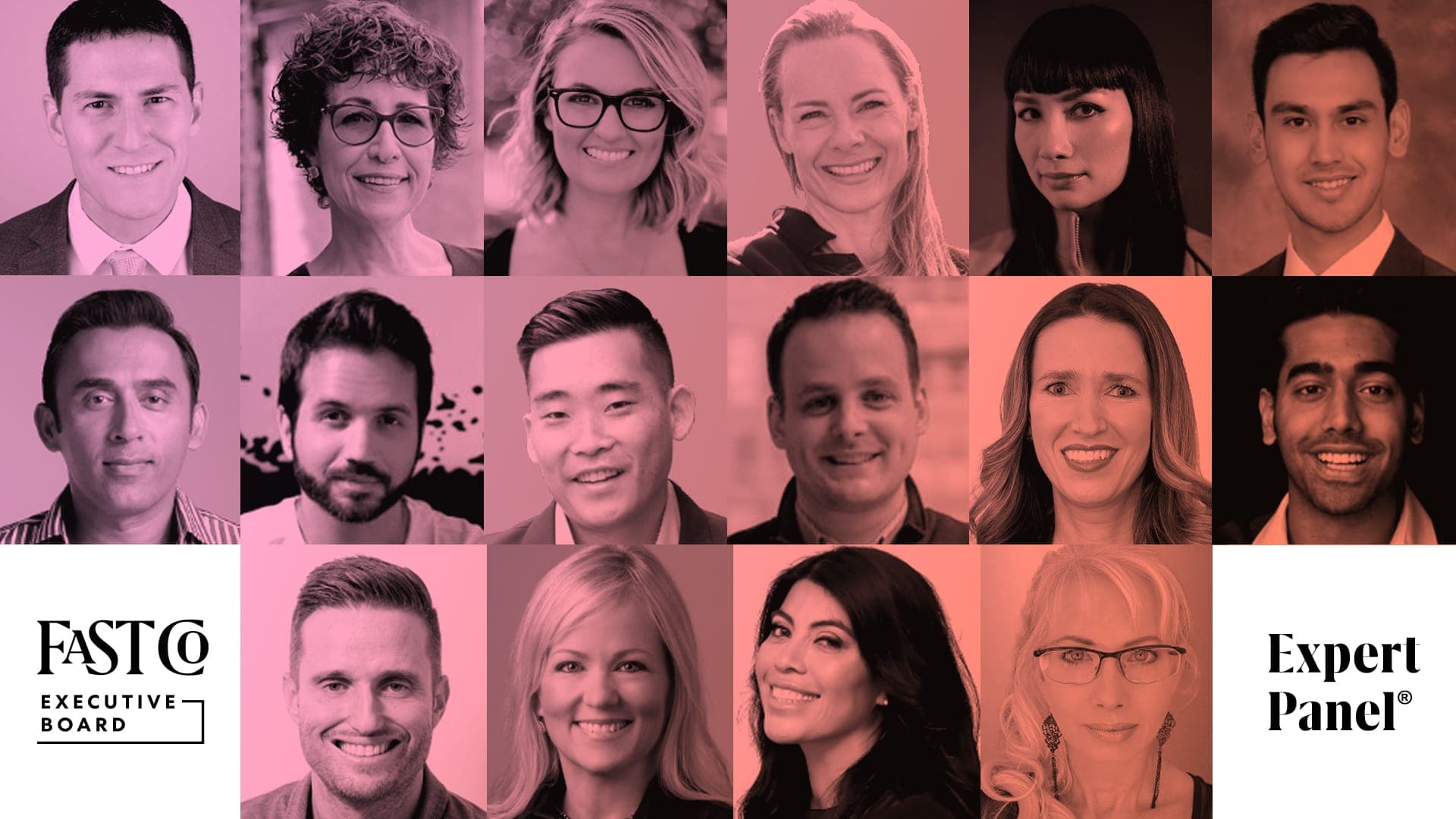
expert panel
Oct 6, 2021
No entrepreneur starts their business journey knowing everything, so it helps to have some hints from those who have walked the path before them. Every entrepreneurial journey comes with a learning curve—one that is likely to include both missteps and victories. Experience may be the best teacher, but it doesn't necessarily have to be one's own personal experience. By getting advice from others who have taken the journey before them, entrepreneurs can gain insights that smooth some of the bumps in the road ahead. Following the right advice can save you from making some of the big mistakes that have cost other entrepreneurs wasted money, time, and energy—and help you make smarter decisions that will shorten your path to success. Below, 16 members of Fast Company Executive Board share the financial advice they wish they’d received prior to starting their businesses.
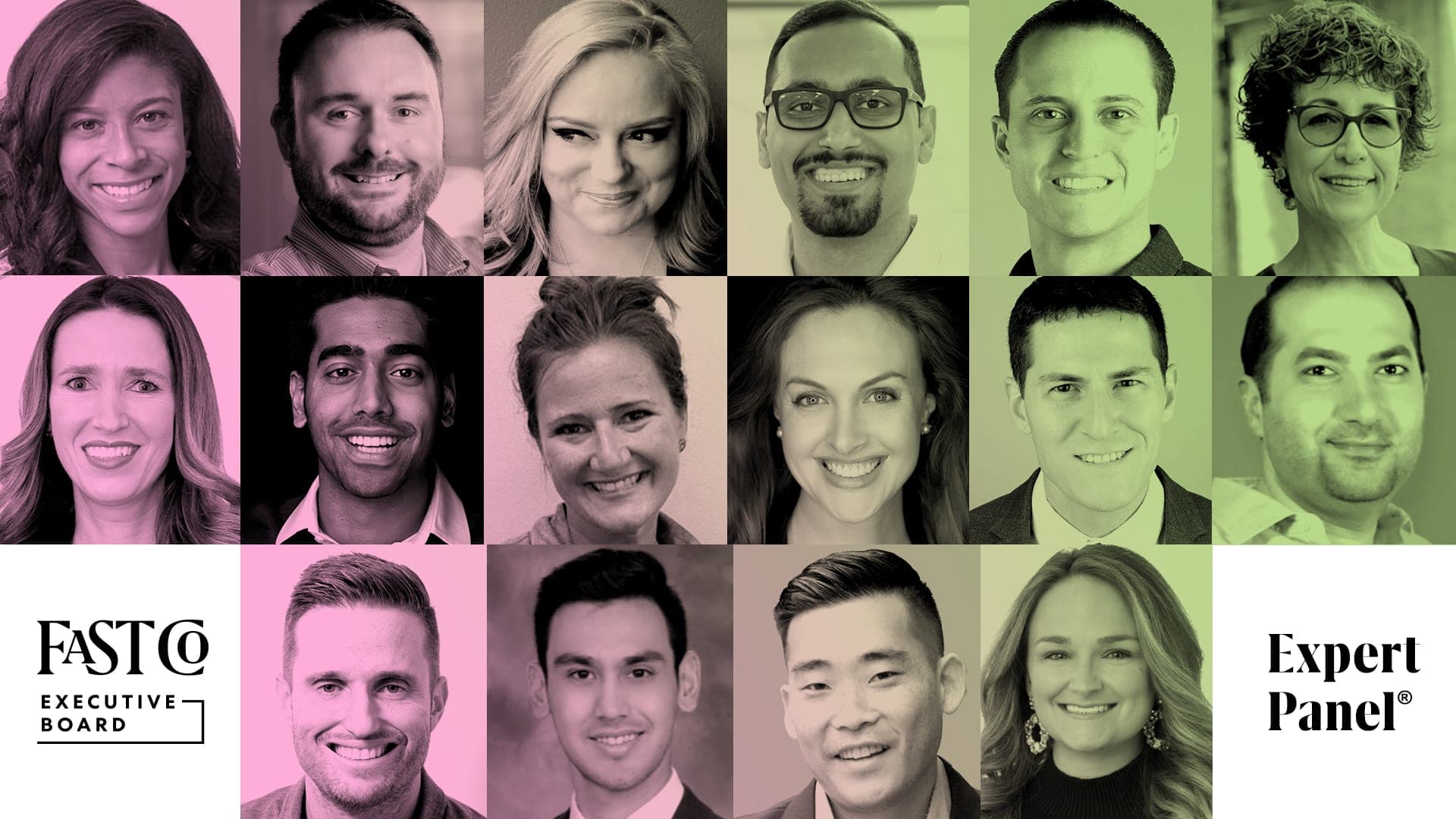
expert panel
Even if you're self-funded, you can still find meaningful and cost-effective ways to recognize and reward your team's hard work. Every leader wants to recognize their team members for their excellent work. But for a startup—especially one that’s bootstrapped—financial rewards may not be possible (for now). Still, when your startup team is putting in long hours and hard work to help you get your dream off the ground, you want to ensure they know that you see their efforts and just how much you appreciate them. Fortunately, showing your team your thanks doesn’t have to be expensive—you just have to be creative and thoughtful. Below, 16 Fast Company Executive Board members offer their advice for entrepreneurs who want to recognize outstanding work from their team even when the budget’s tight.
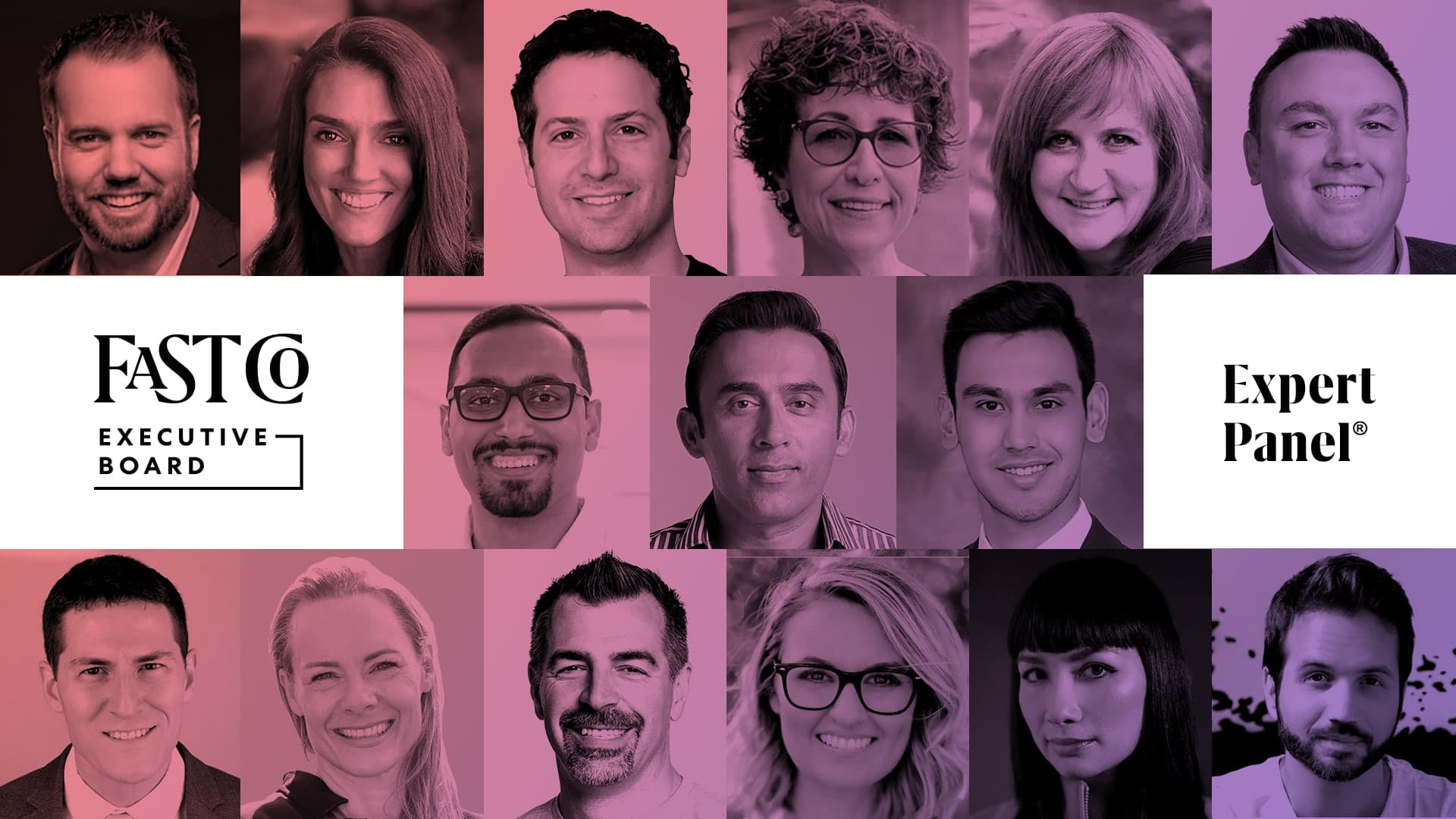
expert panel
Smart professionals know there's always an opportunity to learn more and hone new skills in the business world. Learning a new business skill is always a good idea, whether you’re the company owner or a frontline team member. And in today’s digital age, there’s no shortage of material out there for professionals to peruse, from seminars to online courses to advice from experts. In fact, these days it’s easier to drift into information overload than to be stymied by a lack of resources. If you’re looking to engage in some professional learning or skills building and are overwhelmed by choice or simply short on time, check out the following smart tips for acquiring a new business skill from the members of Fast Company Executive Board.
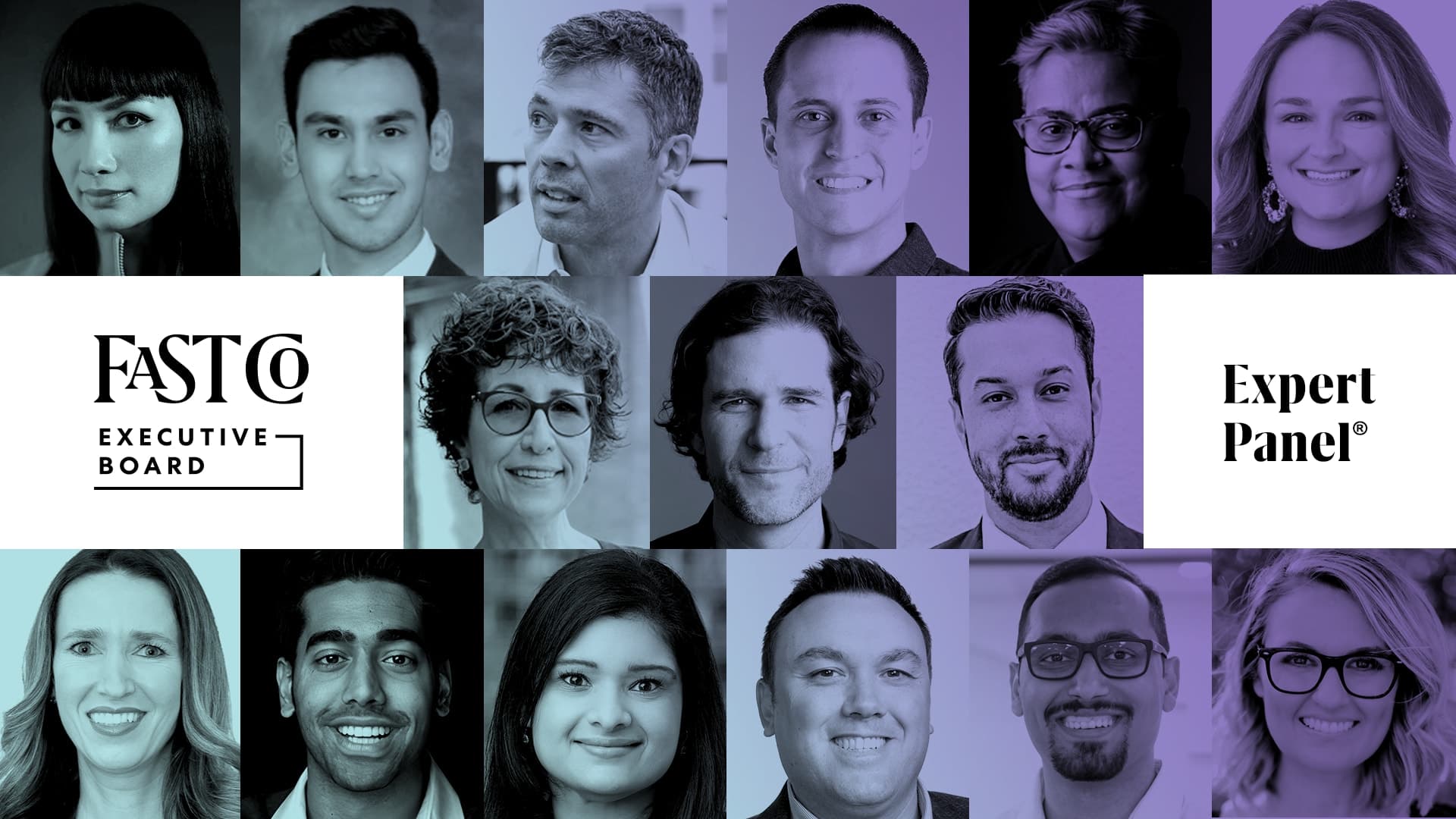
expert panel
If you want to ensure you and your team have a healthy work-life balance, try these strategies for shortening the amount of time you’re devoting to your desk. While work-life balance has always been important, it hasn’t always gotten much serious attention; but since the COVID-19 pandemic, the human need to step away and recharge has increasingly become a topic of discussion. Many professionals at all levels have reported working even longer hours since moving to remote work arrangements—when the office and home become a single location, stepping away can become even harder. Whether you and your team are working exclusively from home or showing up to an office building one or more days a week, developing a healthy work-life balance is essential for everyone’s mental and physical health. To help all professionals add a bit more personal time back into their week, 15 members of Fast Company Executive Board have shared ways to structure and make the most of your “work” hours so you can have more time for your personal life.
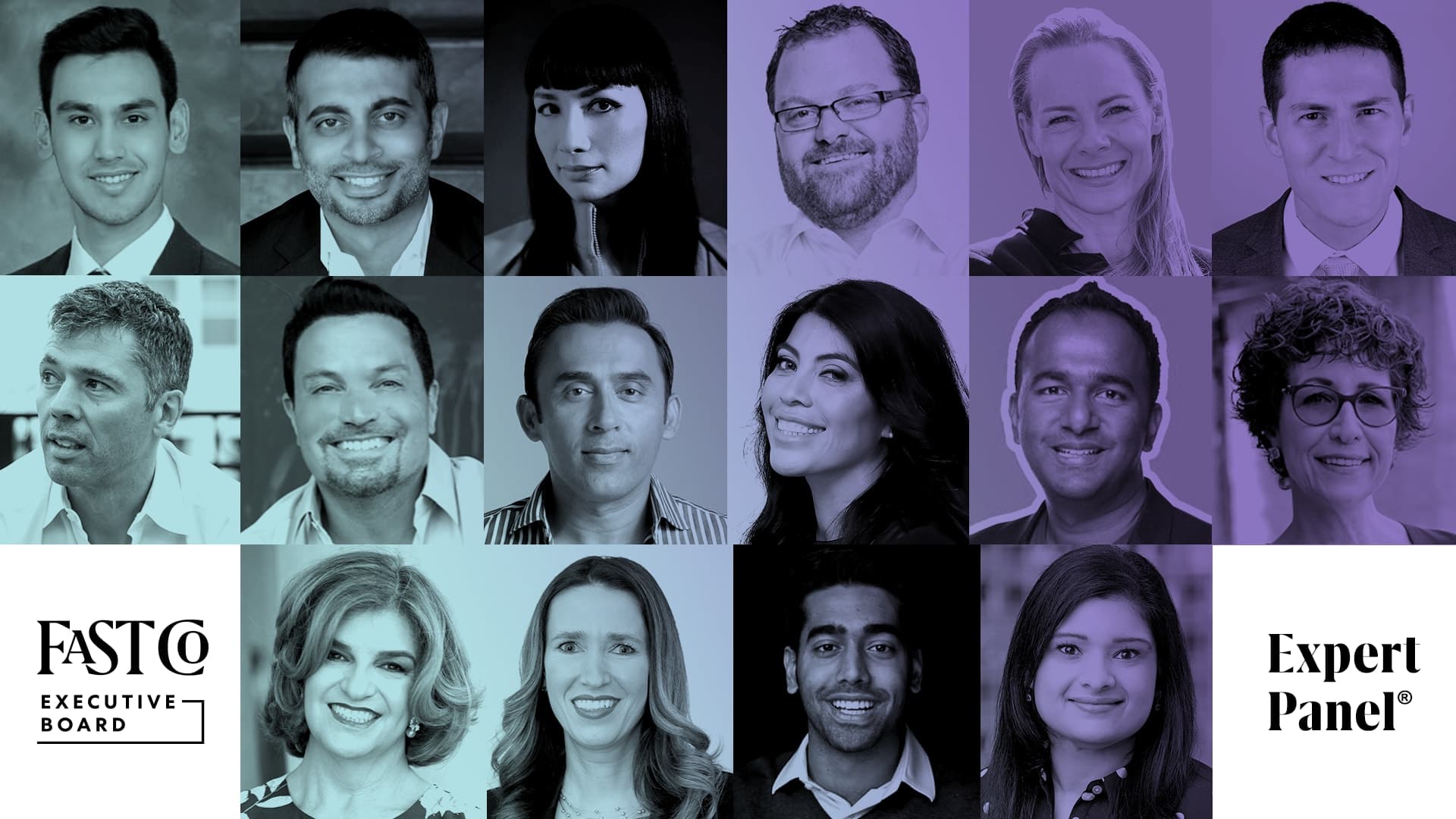
expert panel
Leading a remote team can be challenging, but with the right strategies, you can keep your team aligned and productive no matter where they’re located. Throughout the pandemic, many companies were forced to make an abrupt shift to a fully remote work environment. This, combined with the growth of the gig economy, means that today, many managers rarely if ever meet with their team members in person. The transition was a difficult one for some businesses, and it’s normal for leaders to feel like they’re still learning about and adapting to managing remote team members. The last several months have proven to many businesses that it’s possible to maintain or even improve productivity levels even when some or all team members are working from home—if managers adopt the right leadership strategies. If you’re still learning the ropes when it comes to managing remote and contract workers, check out the following recommendations shared by members of Fast Company Executive Board.

article
Follow these steps to achieve a shared goal.

expert panel
Every professional story includes some mistakes and missteps—including the stories of successful entrepreneurs and business leaders. Mistakes are an unavoidable reality of everyday life, including in the business world. The key to success is not perfection but bouncing back from mistakes and learning from them for the future. Some of today’s most successful entrepreneurs faced significant stumbles and setbacks before striking gold. The members of Fast Company Executive Board have also overcome their share of obstacles during their professional journeys. Below, 13 of them reveal their biggest missteps on the road to success. The lessons they learned from them are among the many reasons they’ve gotten where they are today.
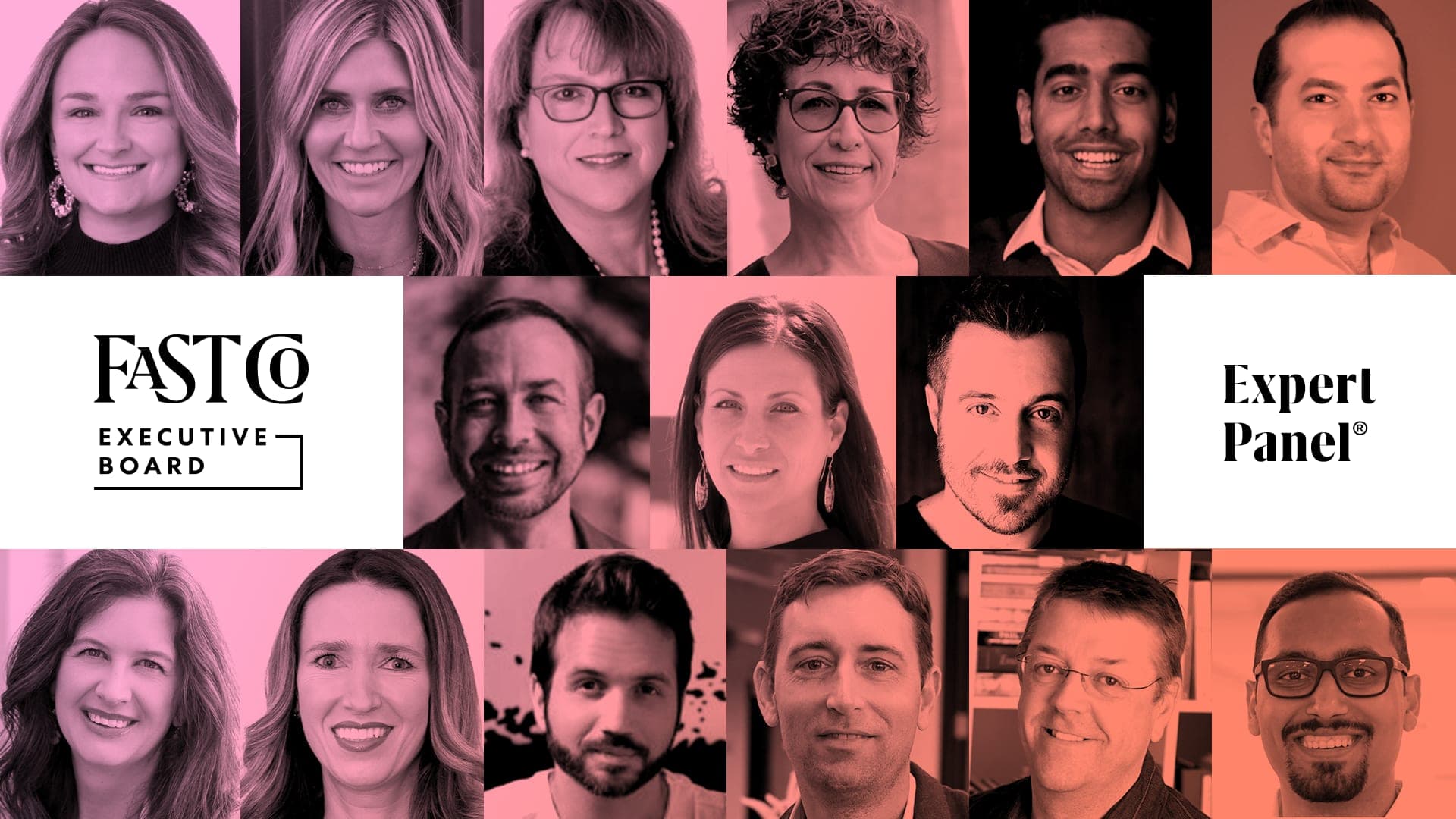
expert panel
You’ve caught the attention of a new prospect—now you need to convince them you can really deliver what you’re promising. Across industries, marketing teams of both B2B and B2C companies employ a variety of strategies to catch the attention of new prospects. It can be a difficult hill to climb—particularly in today’s global, digital marketplace—but even when you succeed, your work may be only half done. The new prospect knows what you claim to offer, but they may not be sure—yet—that you can back it up. To complete the sale, companies need to close the “credibility gap” that may be keeping prospects from making a final decision in their favor. To help, 15 members of Fast Company Executive Board have shared ways companies can convince potential clients and customers that they are capable of and committed to following through on their marketing promises. Follow their advice to establish your expertise and land the deal.
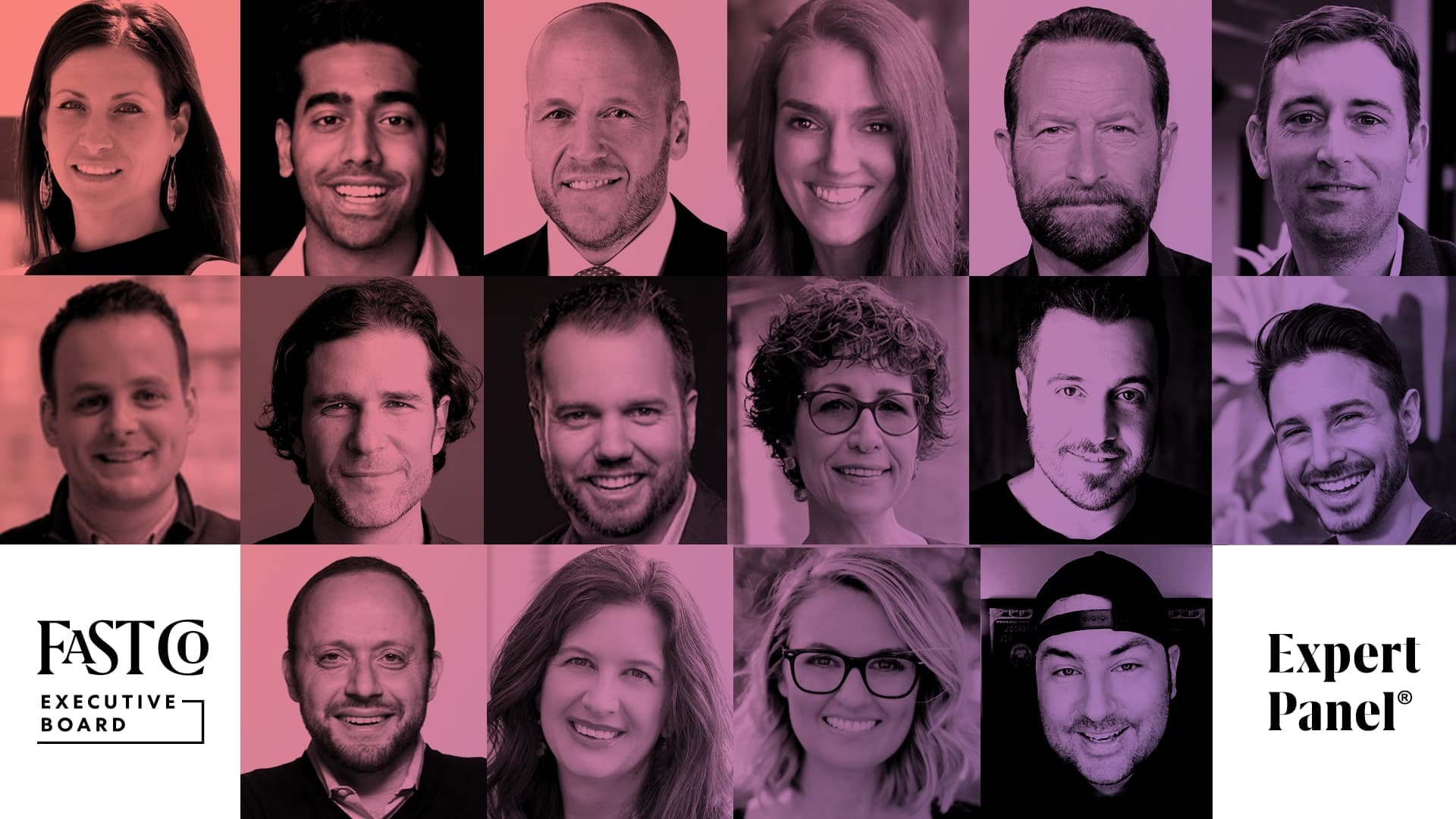
expert panel
Today’s consumers want to engage with the human beings behind a brand, not faceless corporations. “People buy from people.” It’s an adage that has never been more true than it is in today’s digital age. The online economy places near unlimited options at consumers’ fingertips. Even so, people crave real connections and a personal touch in their customer experience. Businesses must develop ways to reach people on a human level to convert online connections into sales. Both B2C and B2B companies will see better results if they’re able to show the human beings who drive their brands. Below, 16 members of Fast Company Executive Board discuss ways business leaders can humanize their brands, no matter what product or service they sell.
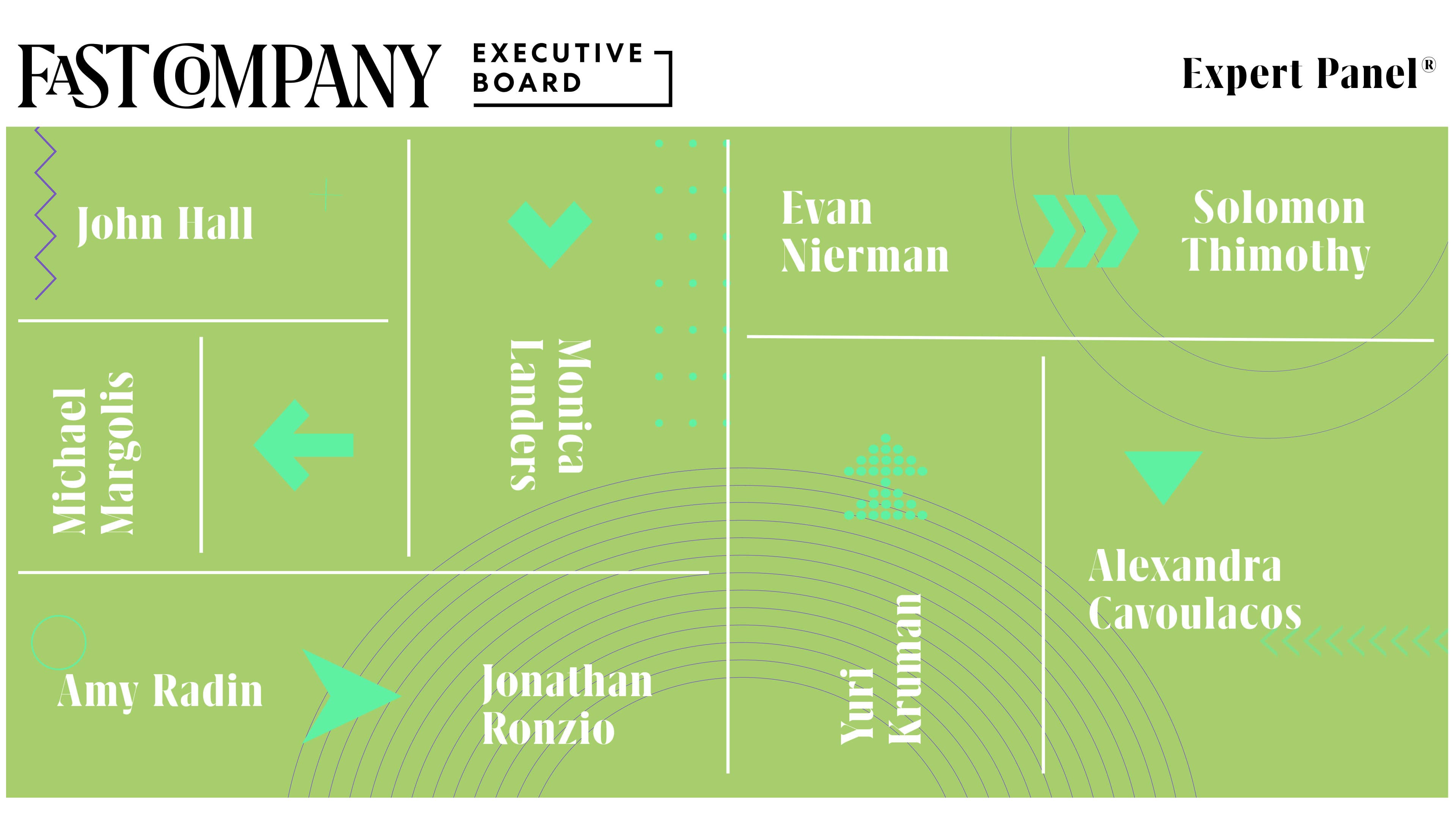
expert panel
Gauging engagement can be difficult when you’re meeting remotely, so it’s even more important to keep an eye out for telling signs of distraction. When the COVID-19 pandemic turned our homes into offices and classrooms, it also ushered in the era of video meetings. While the ability to meet remotely via Zoom and other applications enabled businesses and schools to function in difficult times, it hasn't always been an easy adjustment. When you're meeting with colleagues, clients, or students via a video call, it comes with unique challenges—including effectively "reading the room." When you're leading a video meeting, it’s can be hard to get a sense of how engaged participants are. You can't see everyone at once, and you can't hear the signals of straying attention, such as shuffling feet, creaking furniture, and sighs. Participants are often more reluctant to speak during remote meetings, and it's easier for them to quietly multitask. And presenters can't control the distractions that might pop up in participants' individual meeting spaces. Because of all this, it's important for those who frequently lead video meetings or presentations to be aware of the ways in which participants might be signaling their engagement (or lack of engagement). To help, nine members of Fast Company Executive Board share some audience cues to watch for in your upcoming video meetings.
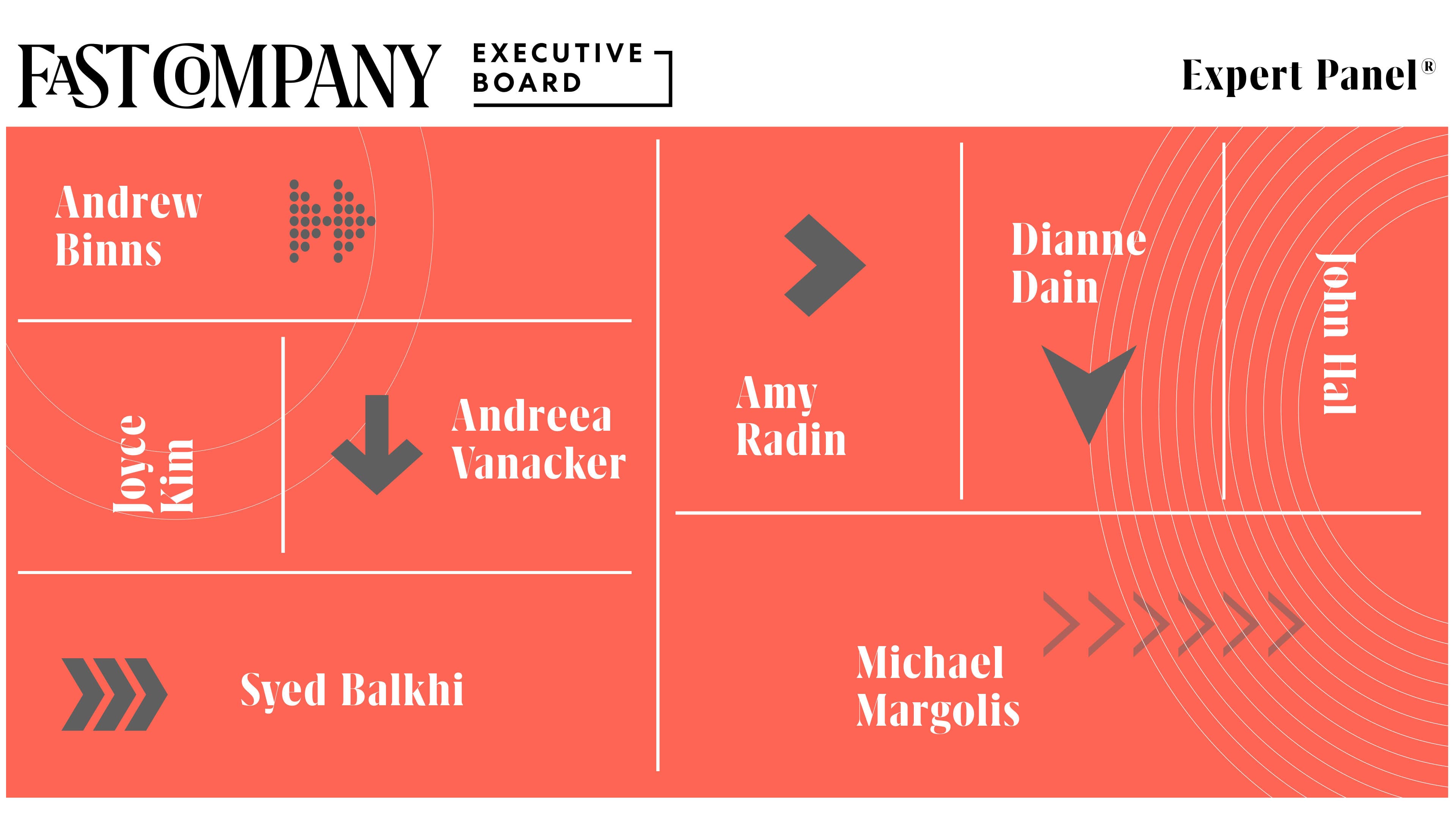
expert panel
There are smart ways to balance business growth with social responsibility (and even tie them together). Every entrepreneur wants to grow their business. However, as experienced leaders know, achieving and then coping with rapid growth comes with challenges. While the first topic that comes to mind may be managing complex finances or building a team to handle the heavier load, another factor to consider is how to address your company’s commitment to social responsibility. For example, the path to growth could potentially involve an expanded carbon footprint. Or hiring quickly to fill needs may make it more difficult to ensure your efforts are guided by diversity, equity, and inclusion. Fortunately, entrepreneurs don’t have to choose between significant success and social responsibility. As the leaders of Fast Company Executive Board know, there are smart ways to ensure that your fast growth also comes with a positive social impact. To balance your desires to build your business and contribute to positive change, check out the eight strategies they share below.

article
How to spot, harvest, channel, and convert weak signals into productive tools for your business.
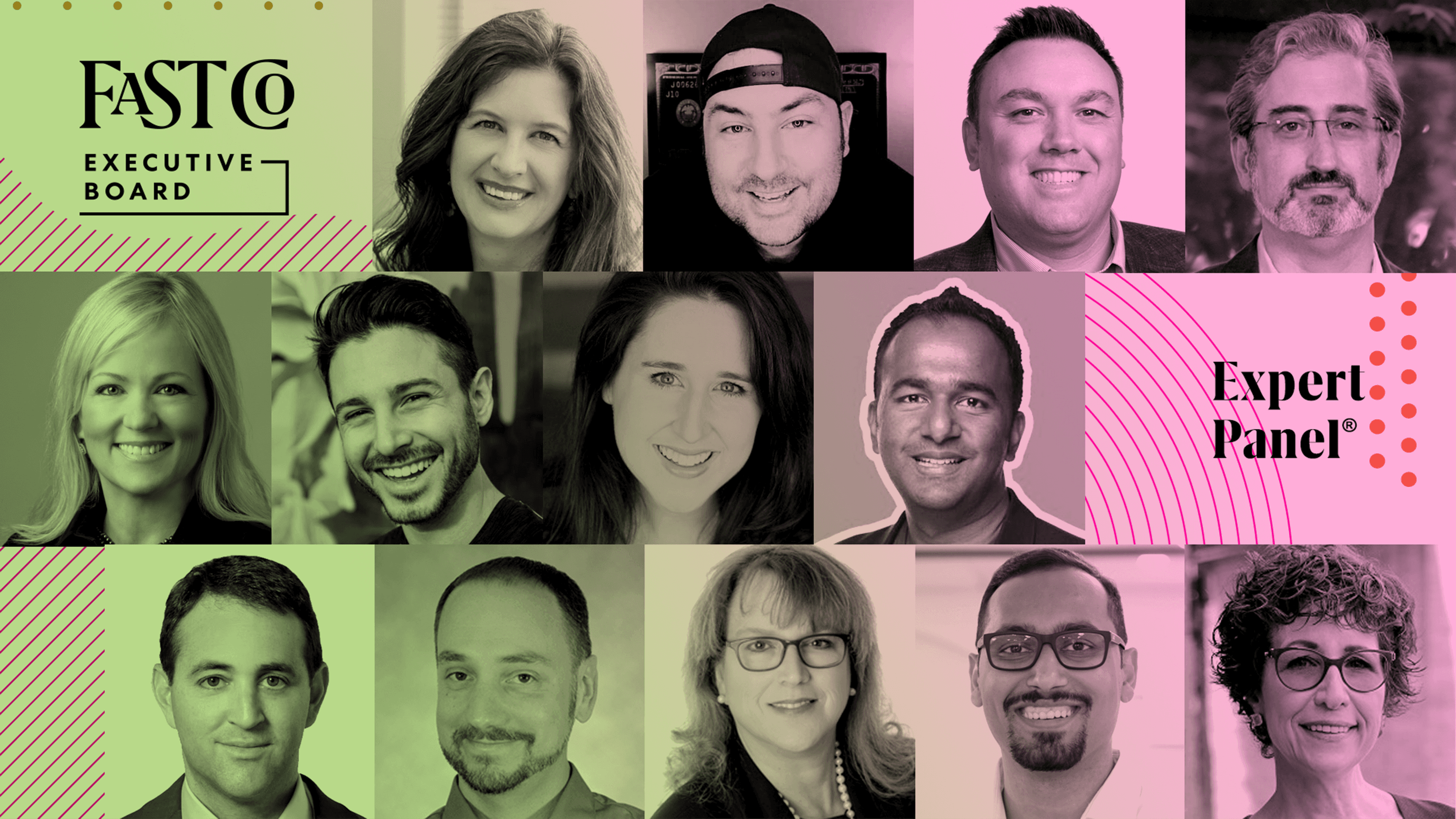
expert panel
Customer retention may be cheaper than new lead generation, but you need the right strategies to successfully earn repeat business. One of the first lessons business owners learn is that it’s cheaper to retain an existing customer than to engage a new one. However, that doesn’t mean it’s easy—and failing to retain current clientele can lead to detrimental consequences for an organization. Fortunately, there are several simple strategies that businesses can use to help retain and engage their existing customers. Not sure where to begin? Start with these 13 tried-and-true tricks shared by the members of Fast Company Executive Board.
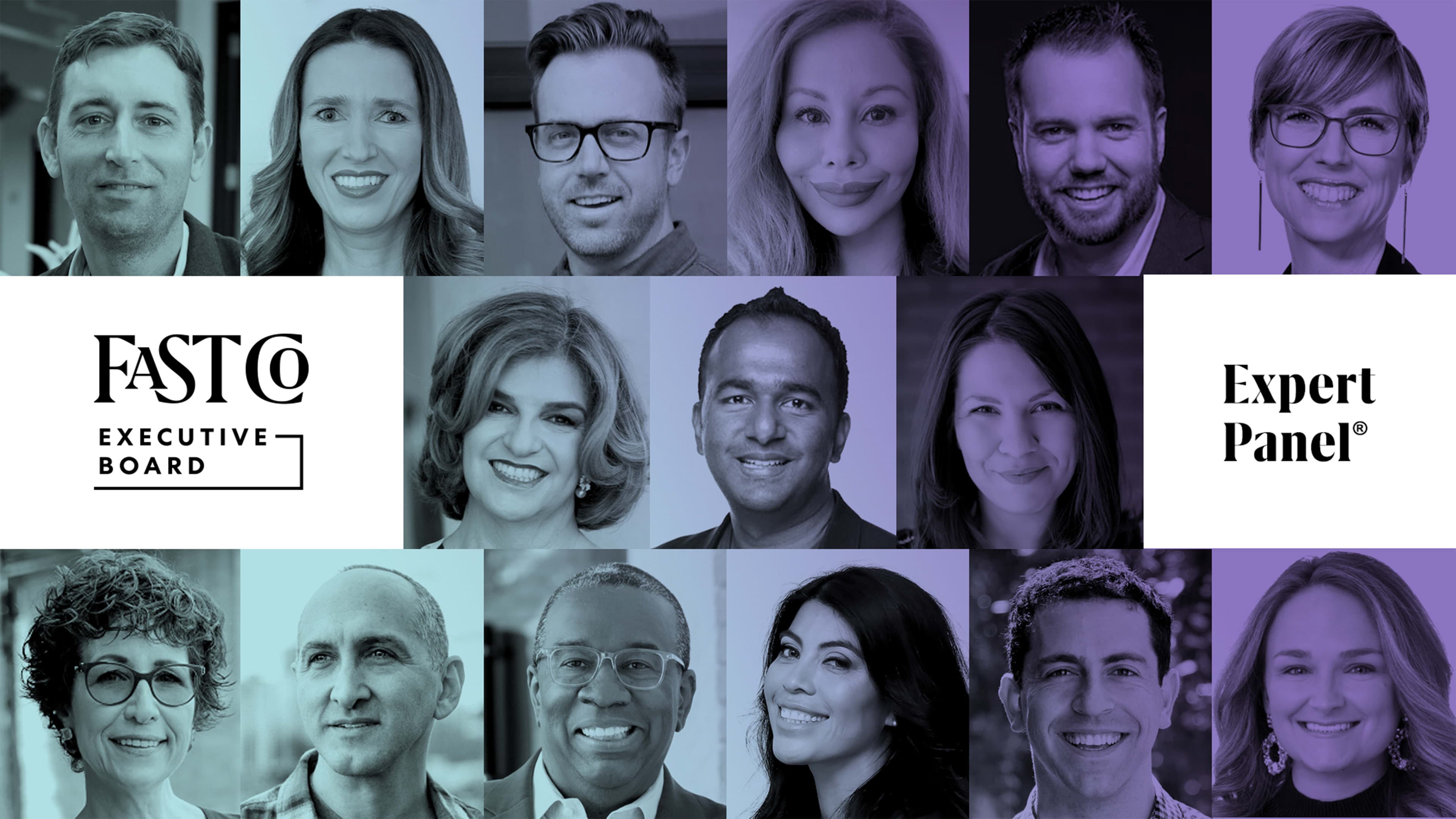
expert panel
A culture of adaptability has helped many organizations not only survive but thrive through the challenges of the past year and will set them up for future success. Founding and leading a business or organization comes with many unknowns, but one thing seems certain: At some point, leadership will have to guide the team through a crisis. While every crisis won’t have the global reach and severity of the COVID-19 pandemic, every crisis can cause disruption, lost momentum, and even failure—if leaders haven’t created a culture of adaptability. With the right guidance and preparation, businesses and their team members can quickly make important decisions and pivot when and as needed—even in the face of a crisis. However, adaptability doesn’t happen accidentally; it’s a skill and a mindset that must be intentionally developed and cultivated every day within an organization. Below, the members of Fast Company Executive Board share 15 practical ways leaders of any business or organization can build a culture of adaptability.
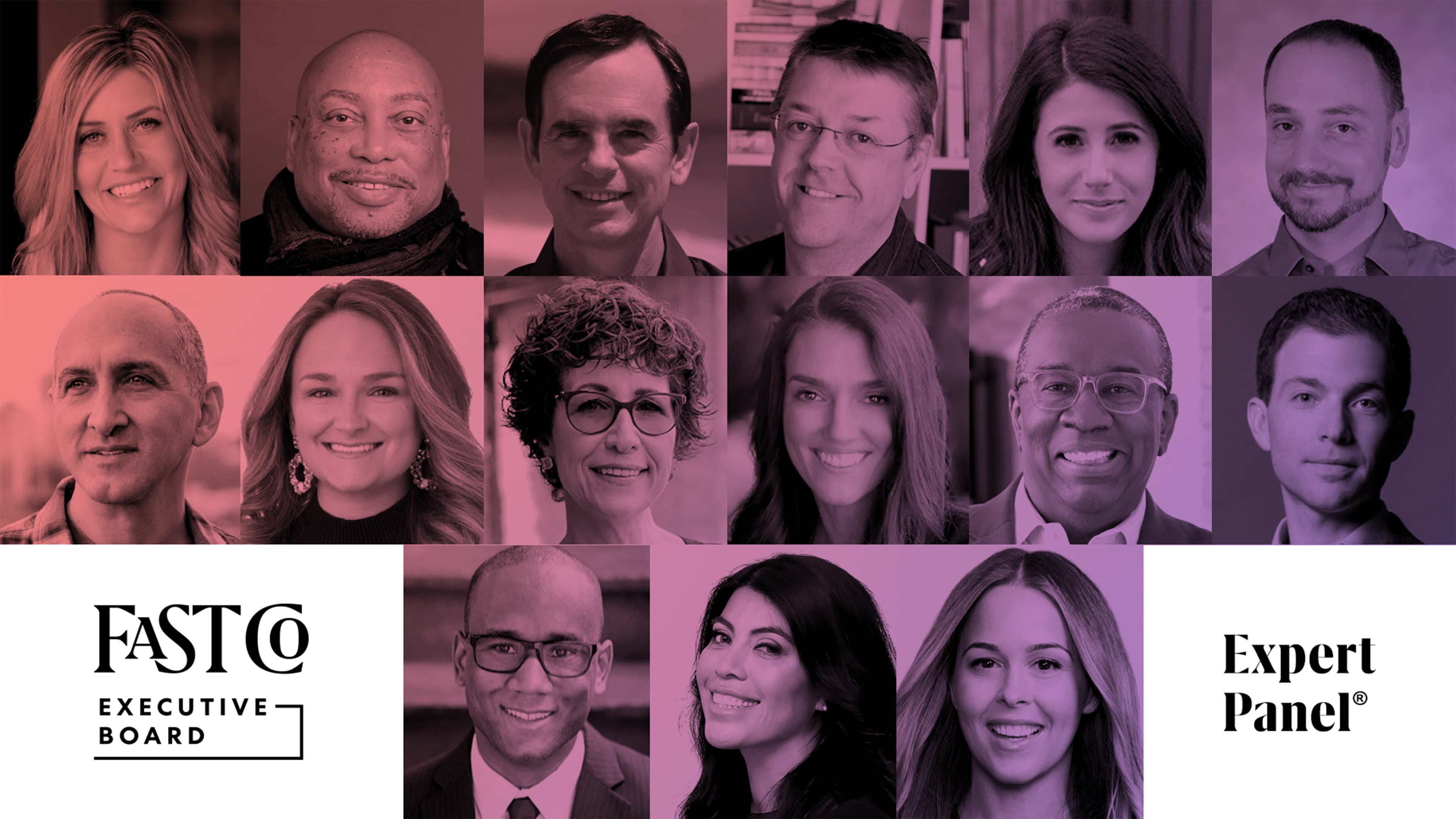
expert panel
Debate in the workplace is essential to collecting and considering diverse opinions, but it must be done respectfully. Organizations thrive when a diverse team comes together to serve the audience and each other. Similarly, leaders benefit when they receive input from everyone throughout the company. Hearing from team members with a variety of backgrounds and experiences better informs important decisions. When a variety of perspectives is brought to the table, however, it’s certain that there will be occasional disagreement and debate—sometimes vigorous. Challenging one another and sharing dissenting opinions is an important part of the brainstorming process, but for a strong and trusting culture, the debate must be healthy and respectful. Setting clear “ground rules” and leveraging smart strategies can ensure all your team members feel comfortable bringing their ideas forward and working together to reach the best conclusion. Below, 15 members of Fast Company Executive Board share ways they’ve accomplished this in their organizations.

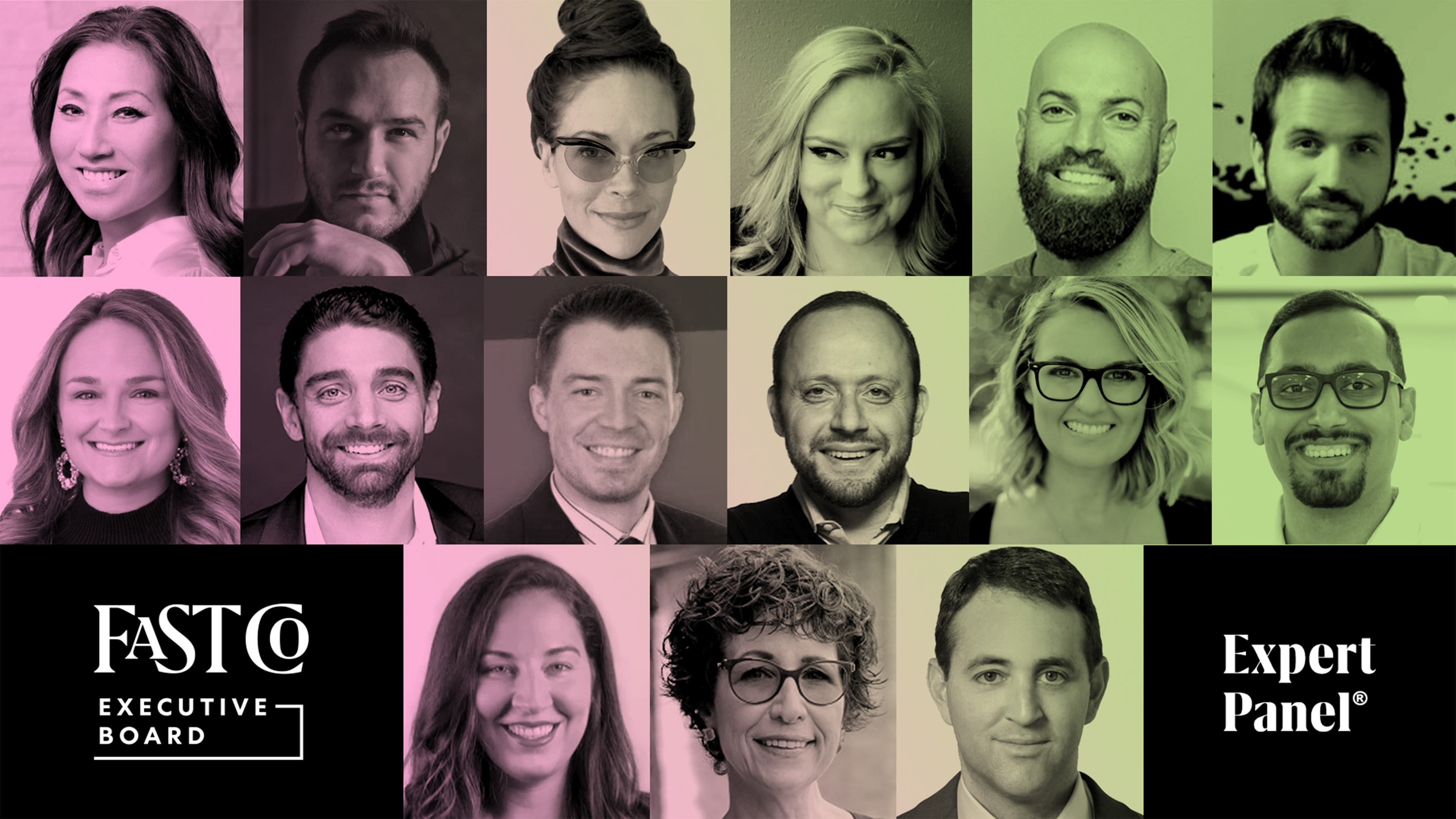
expert panel
Success in the modern business world depends on developing an authentic, genuine brand that makes customers feel understood and appreciated. Today there are so many established and new businesses—together offering a staggering array of products and services and easy to access online—that a company can no longer simply lean on their service offerings as their main point of attraction. Consumers want to support brands that they see as authentic and that share and practice their values. That’s why business leaders need to focus on creating a brand that encourages genuine connections and loyalty. Developing a brand is both a creative venture and a journey of discovery. Below, 15 members of Fast Company Executive Board share their top secrets to help you build an authentic brand that truly connects with your customers and audience.
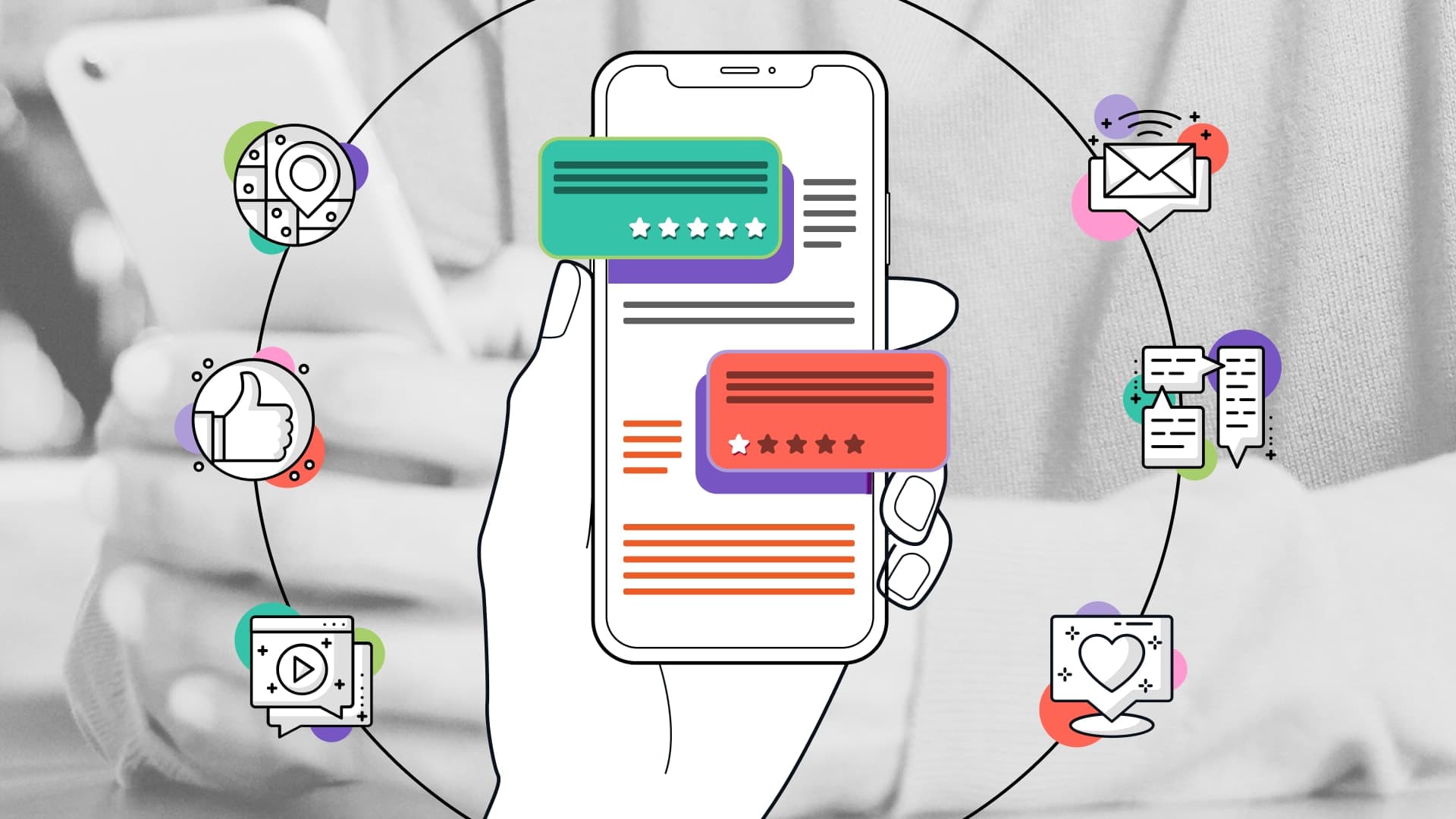
article
This is the key to thriving through multiple crises.
Company details
Pragmatic Innovation Partners LLC
Company bio
I work with executives and founders to mobilize and inspire their organizations to deliver impact, overcoming resistance to change, building stakeholder alliances, and establishing shared values essential to solving implementation disagreements. I tap into my career's worth of experience as an executive-level operator inside demanding, conservative and proud brands, my role engaging with dozens of tech founders as a LP in an early stage fund, and my thought leadership as a lecturer at Columbia University. My focus has always been on defining and scaling customer-obsessed approaches essential to marketplace impact and brand success. In my award-winning book, The Change Maker's Playbook: How to Seek, Seed and Scale Innovation In Any Company I share some of the practical advice, tools, and stories (my own and that of 50 other innovators interviewed) gathered to help the person sitting in the innovation "hot seat" make progress to achieve their vision that I expand upon in my advisory, project-based consulting, keynote addresses and executive consults.